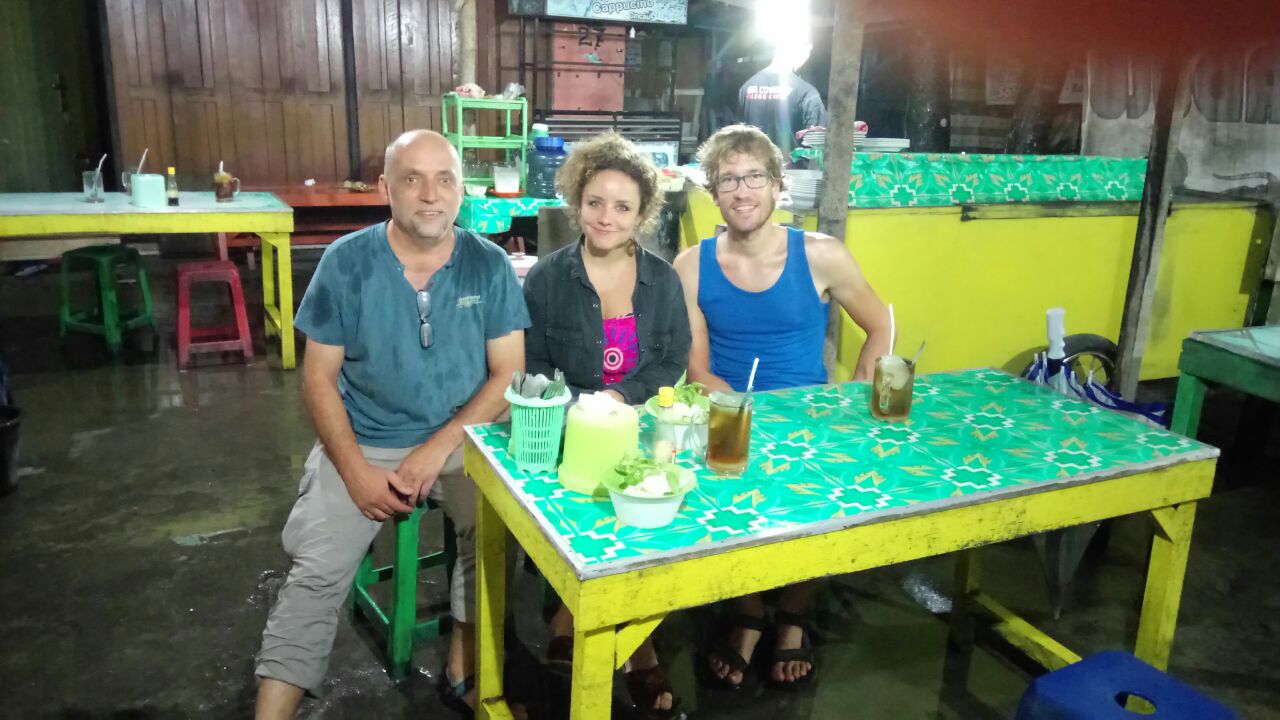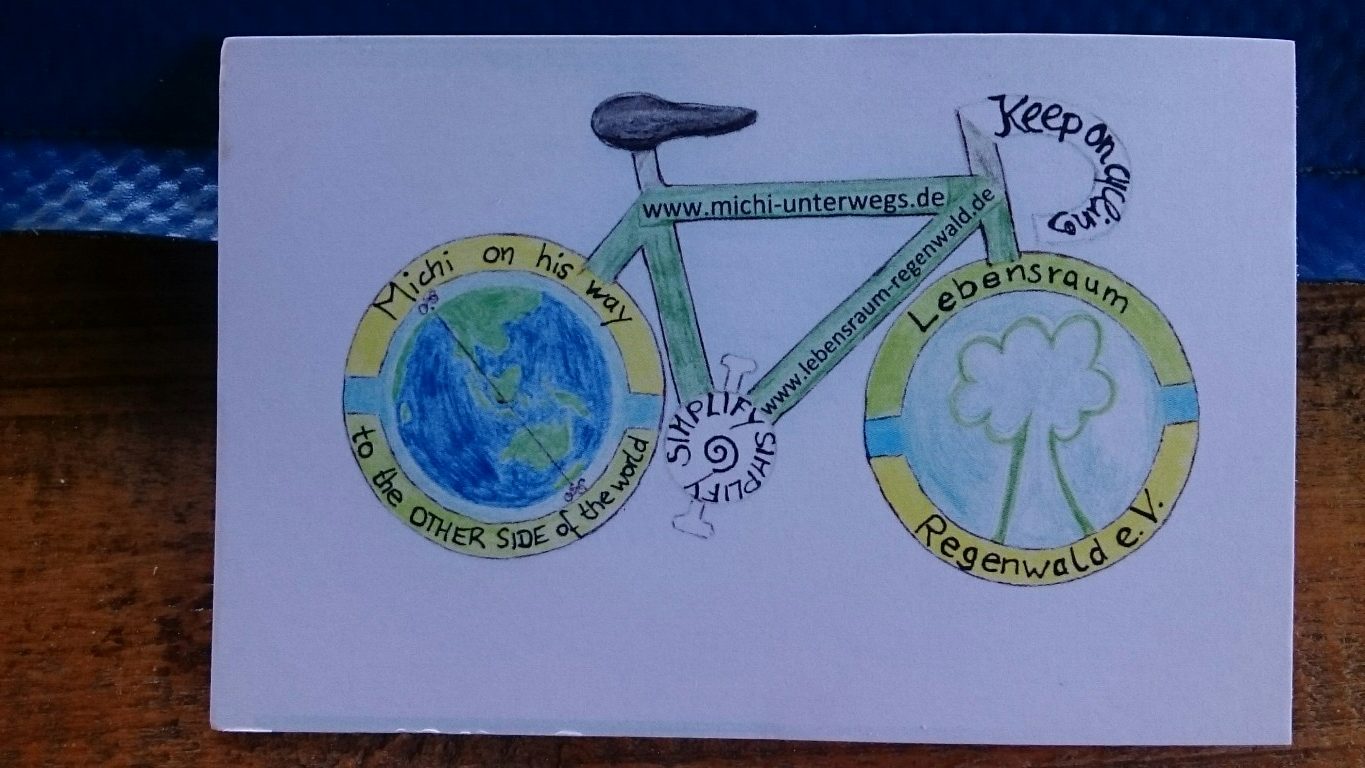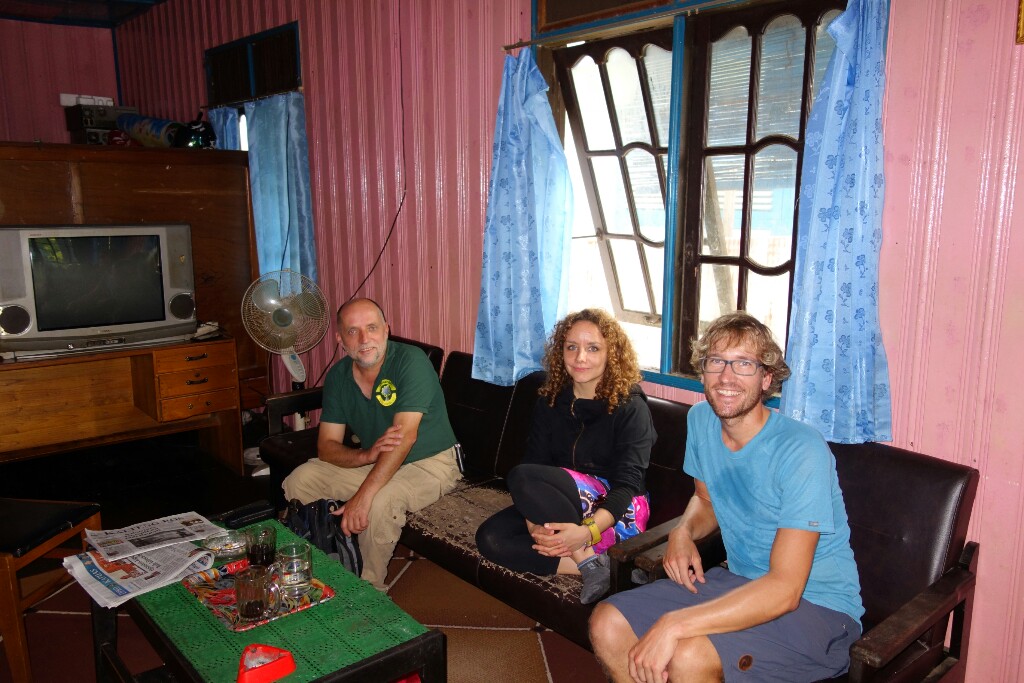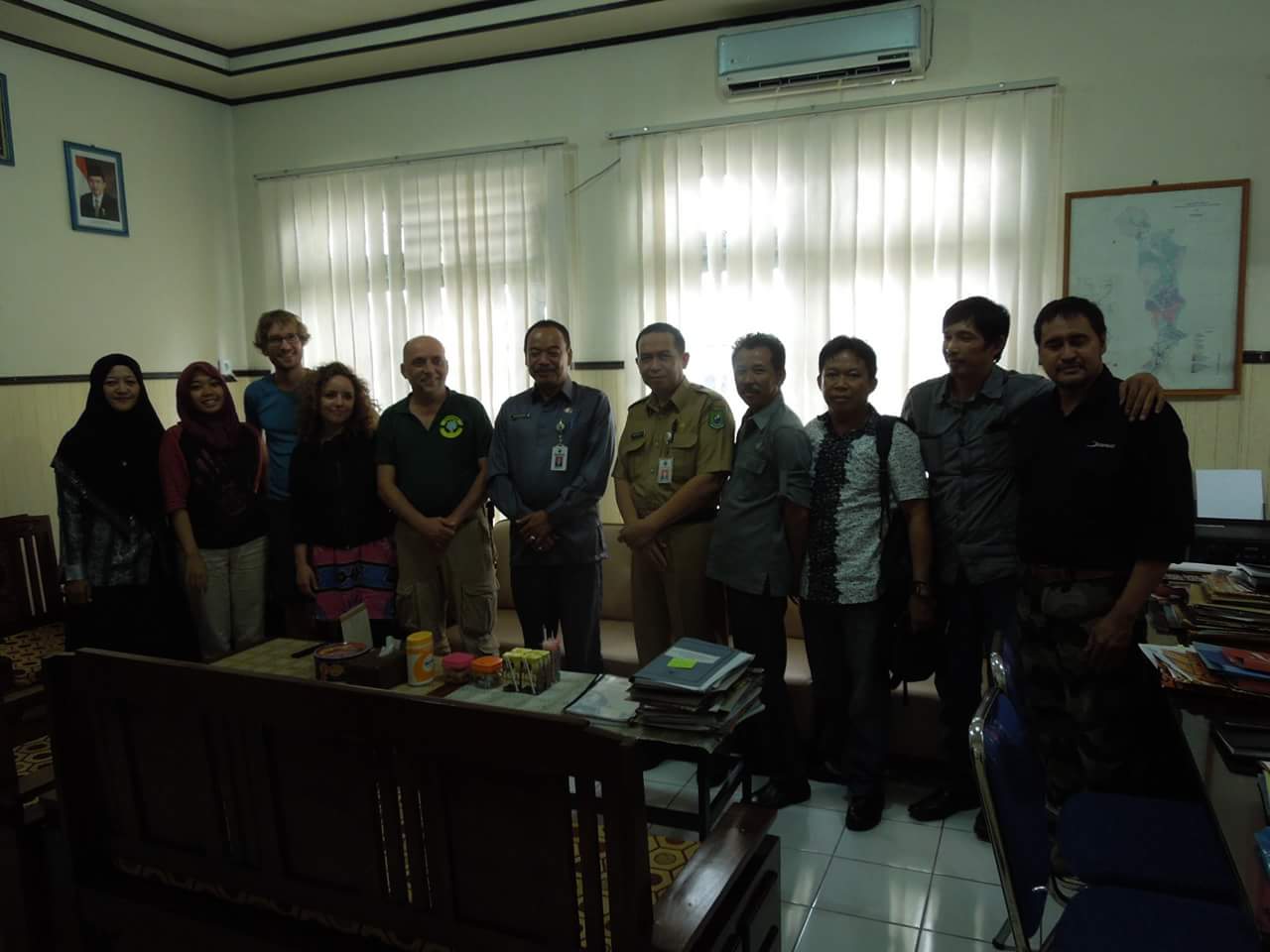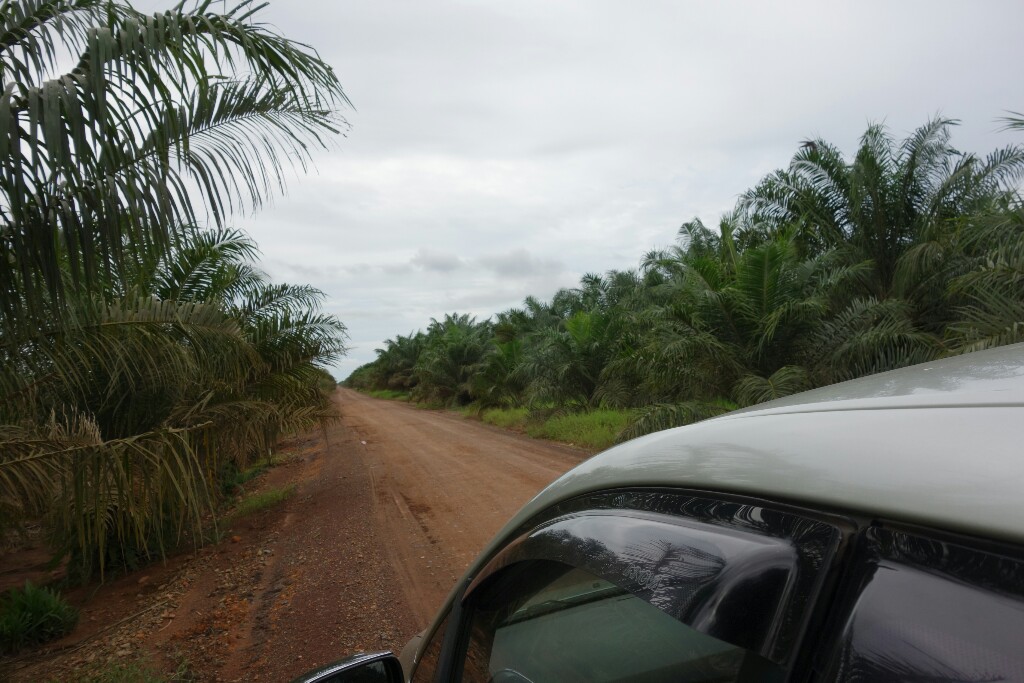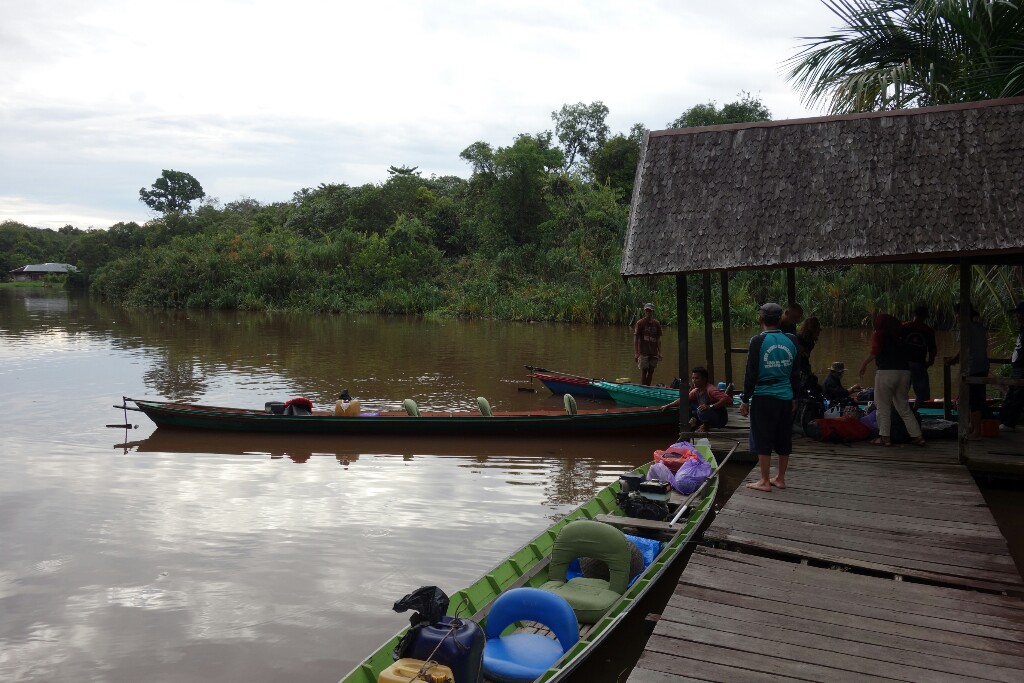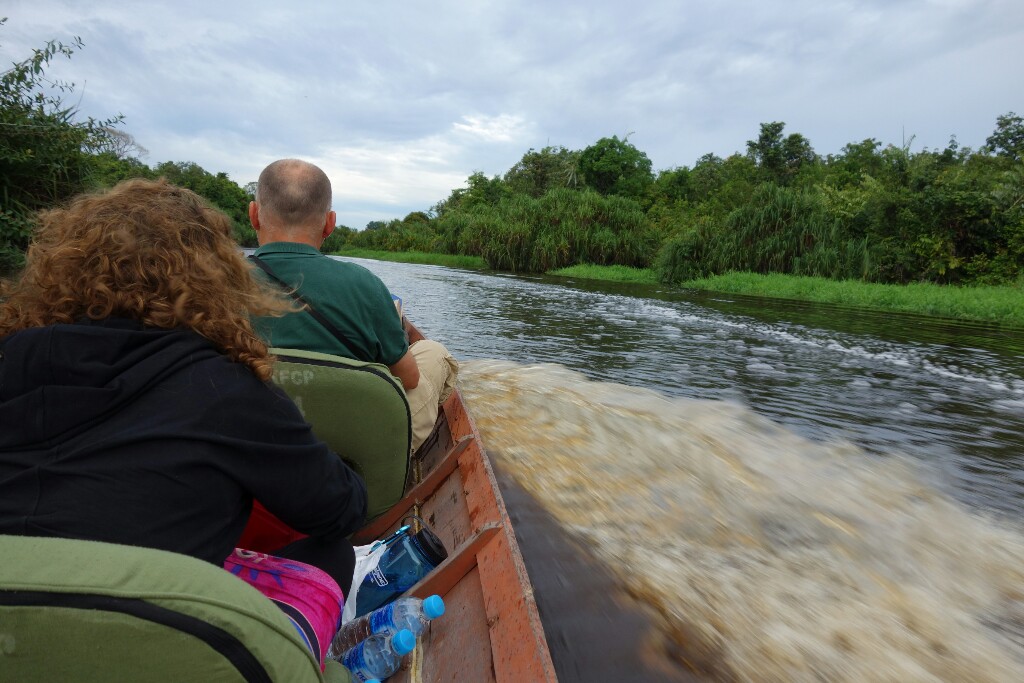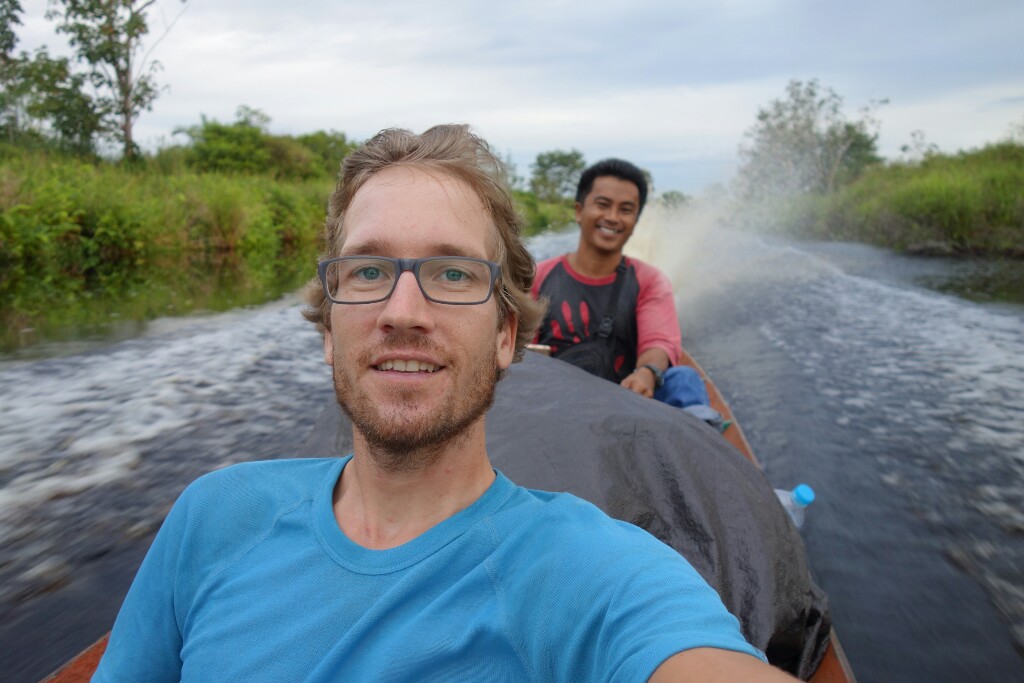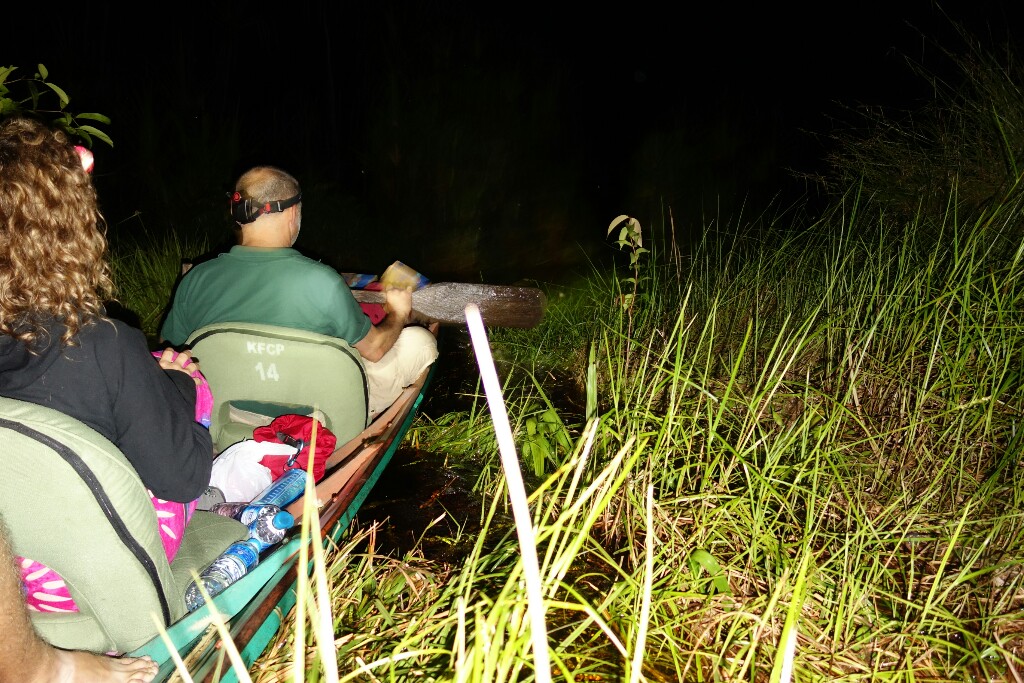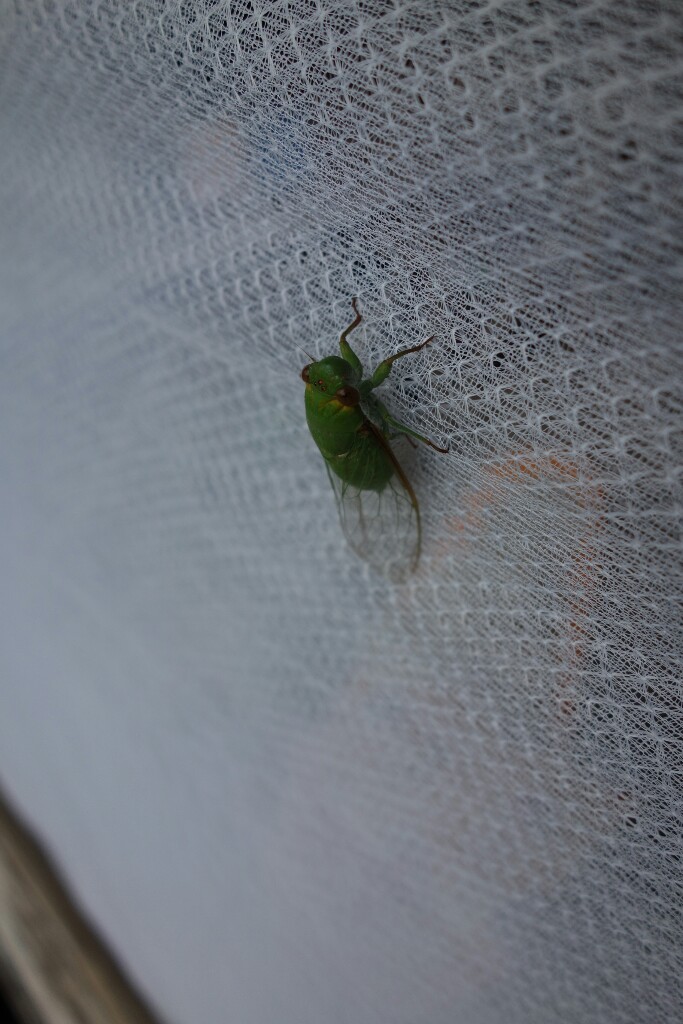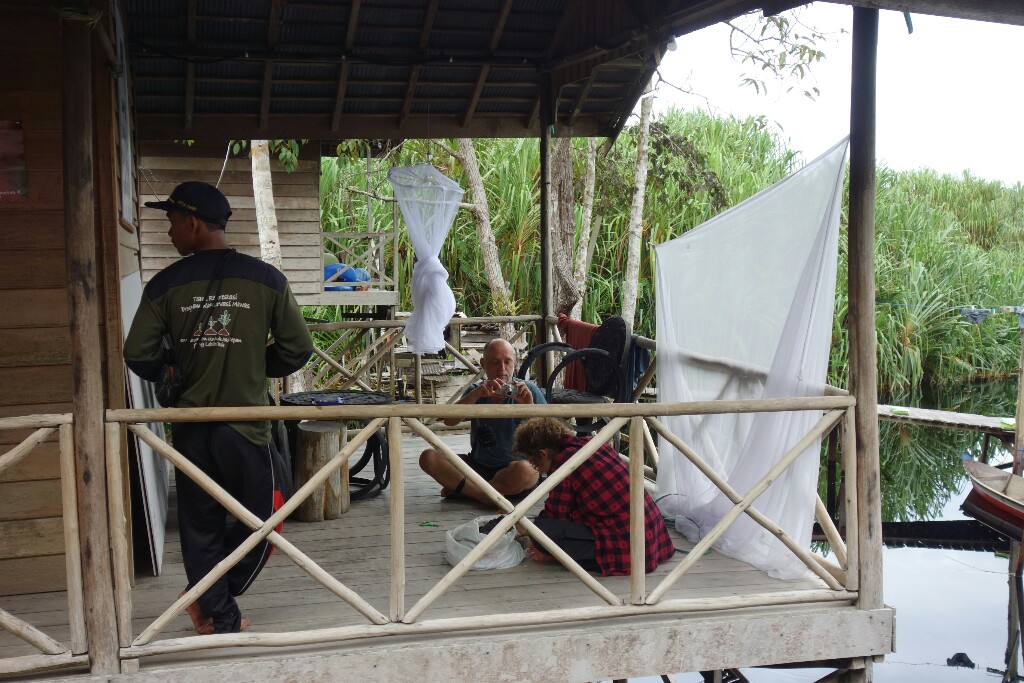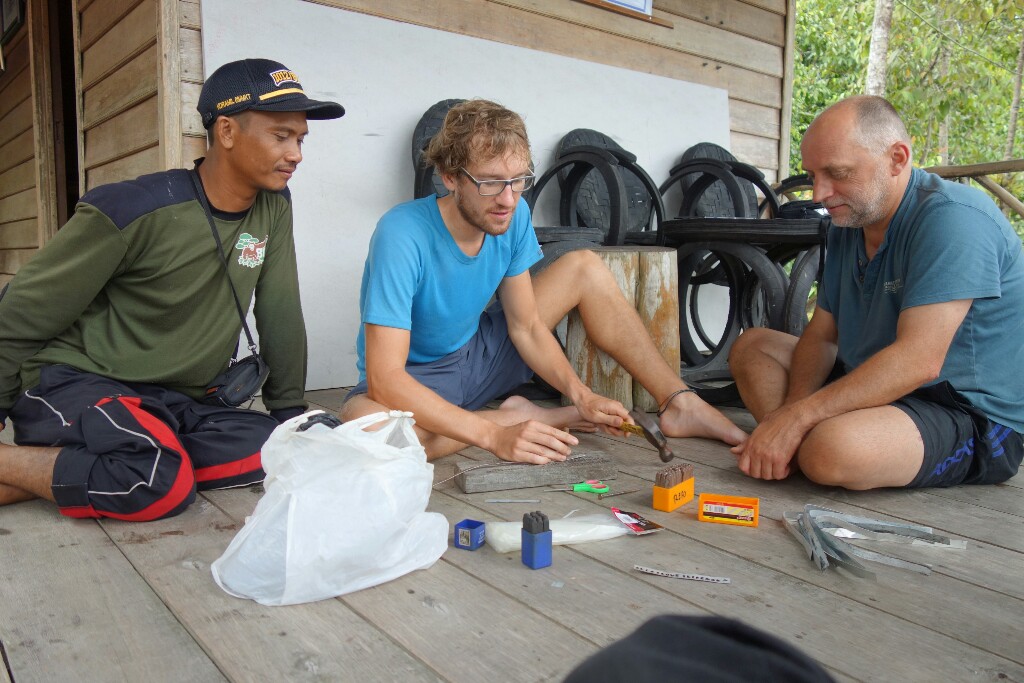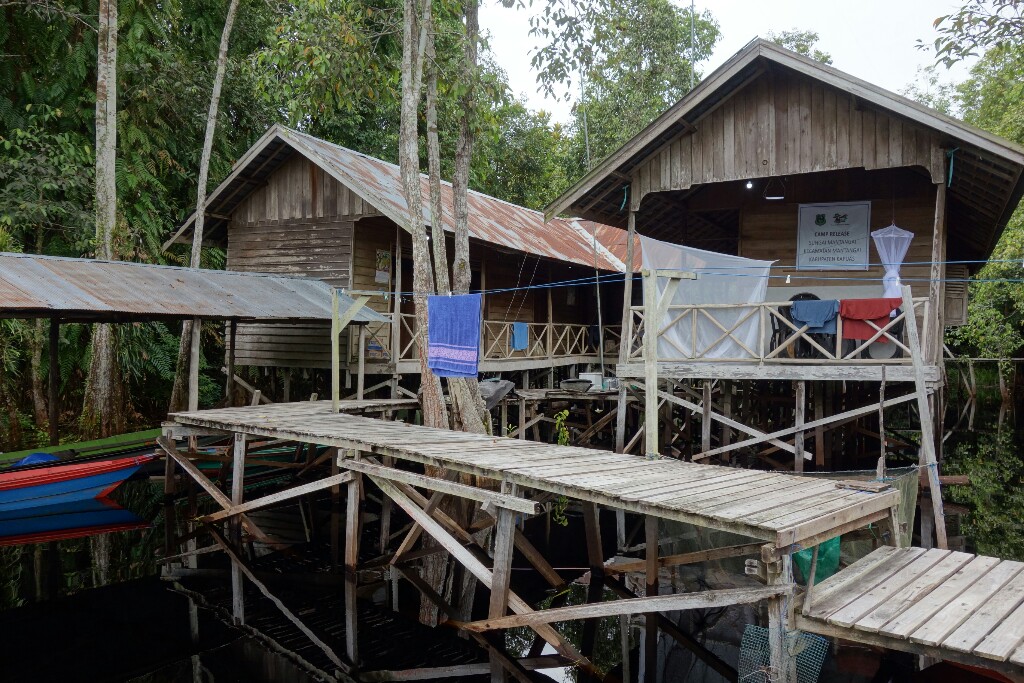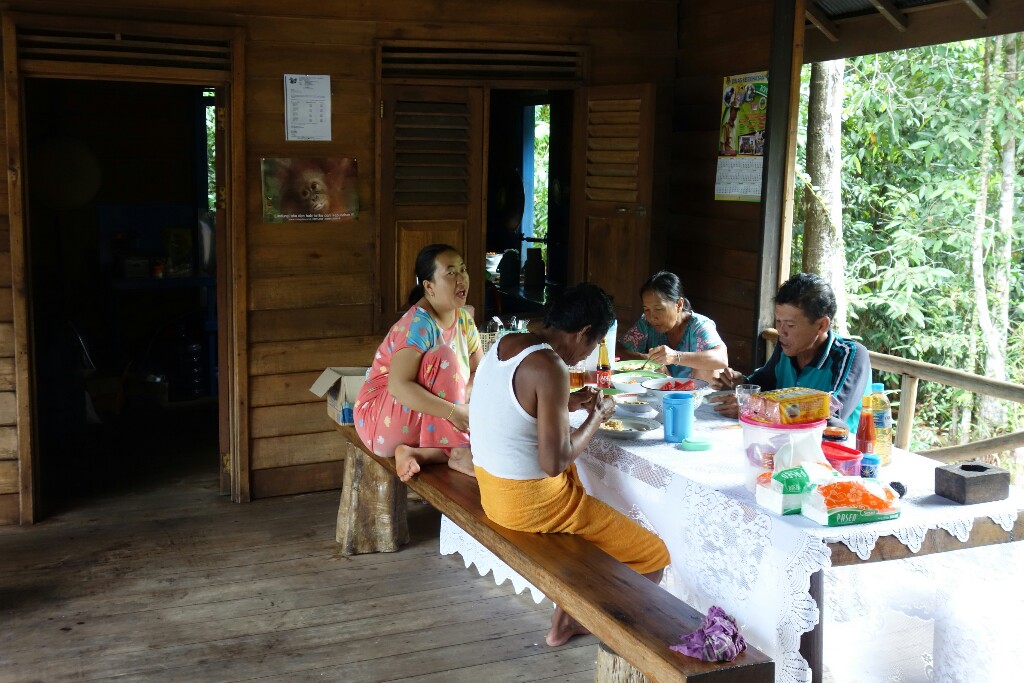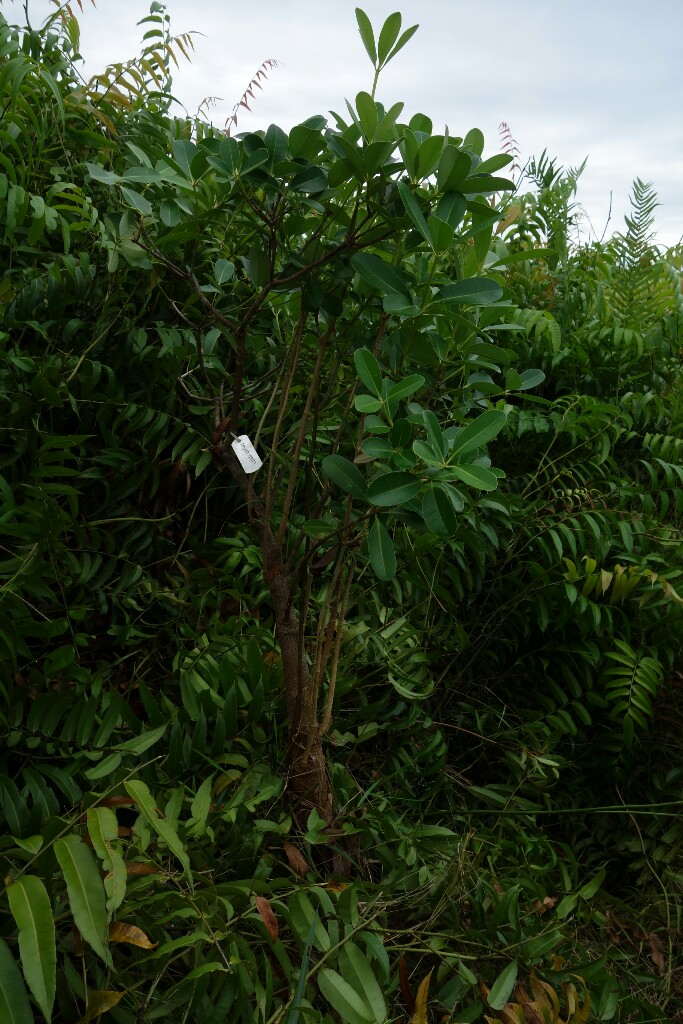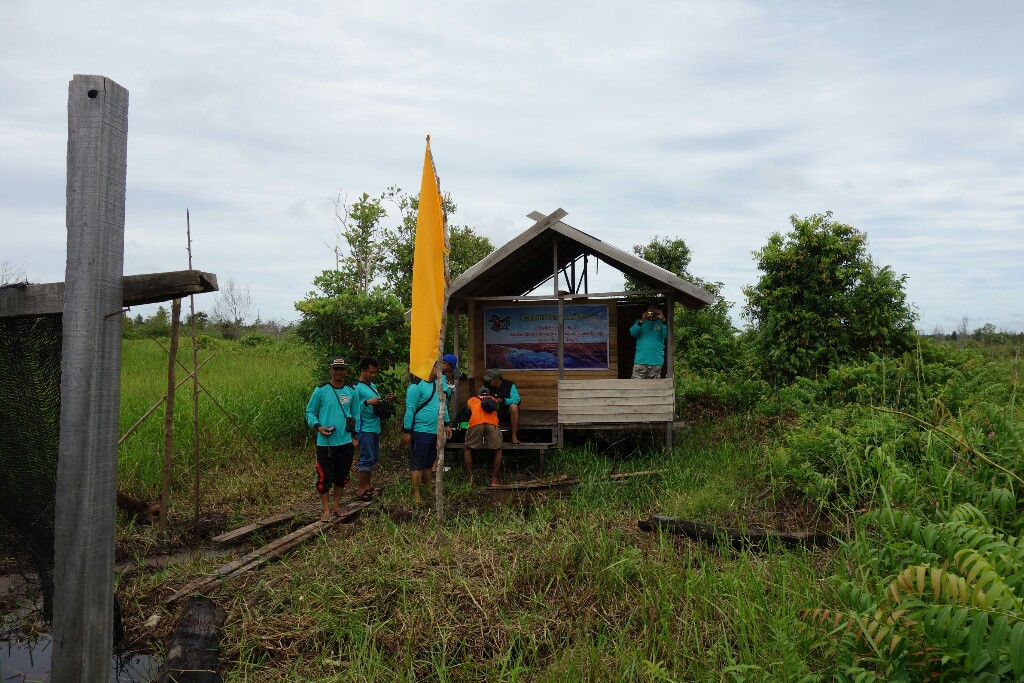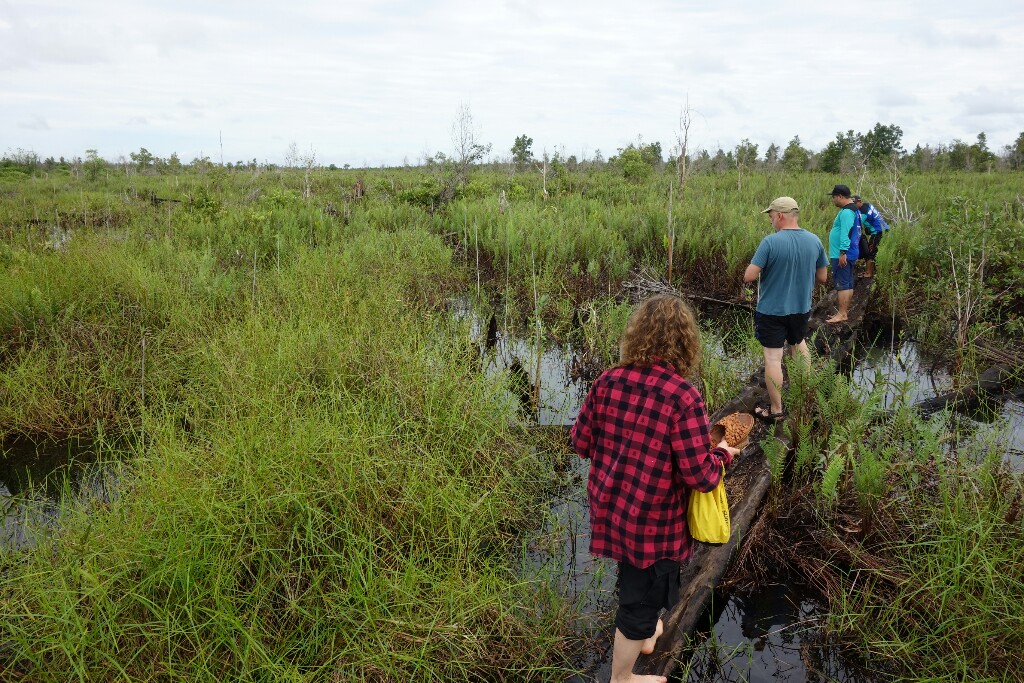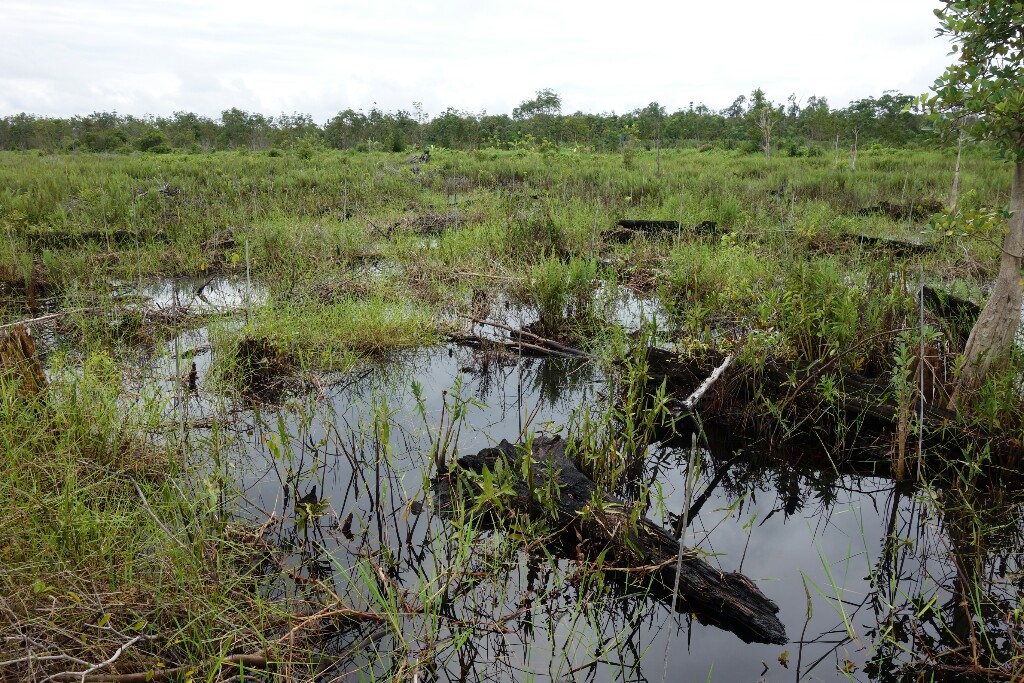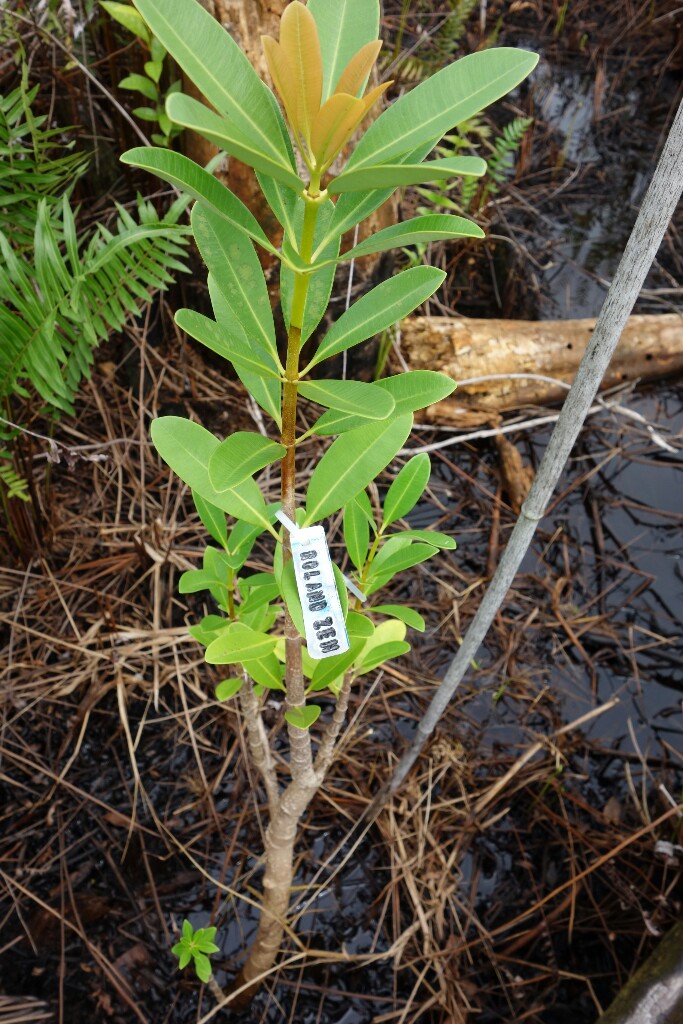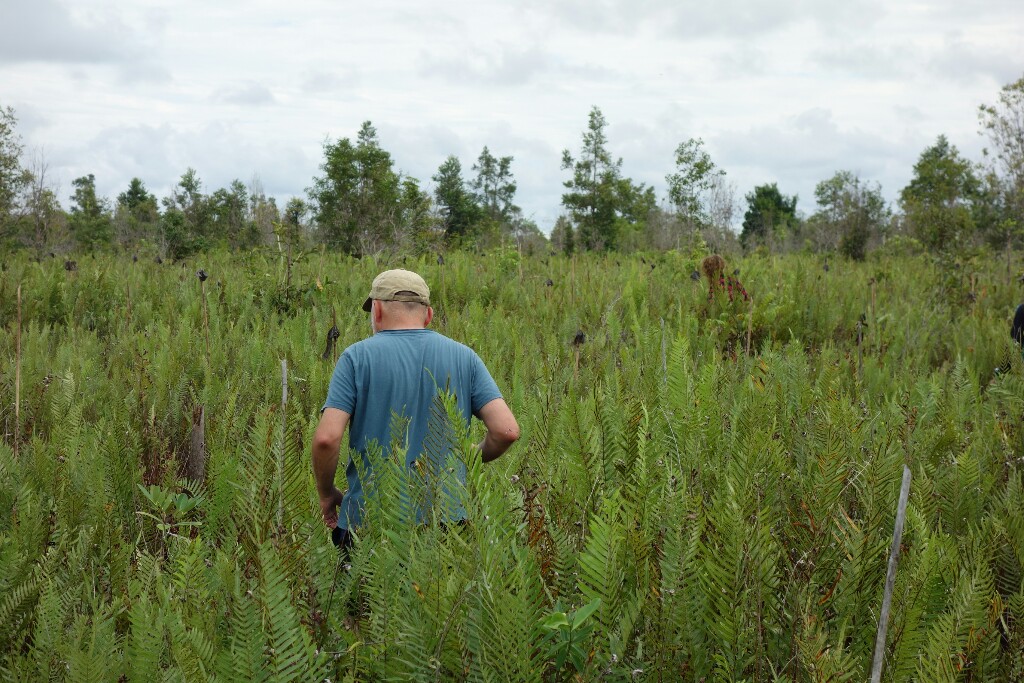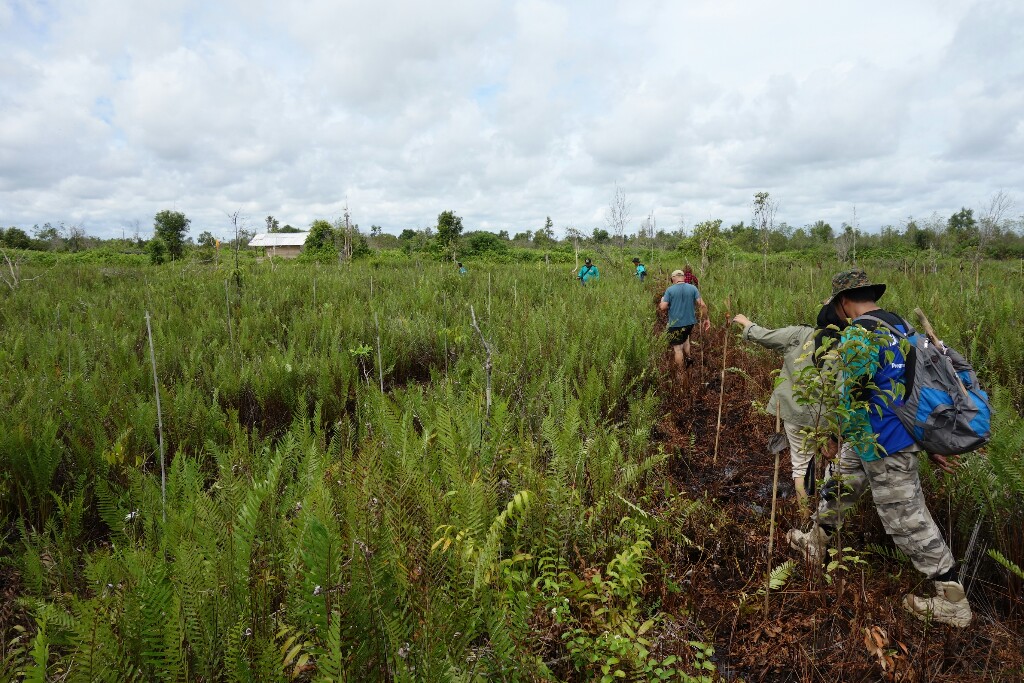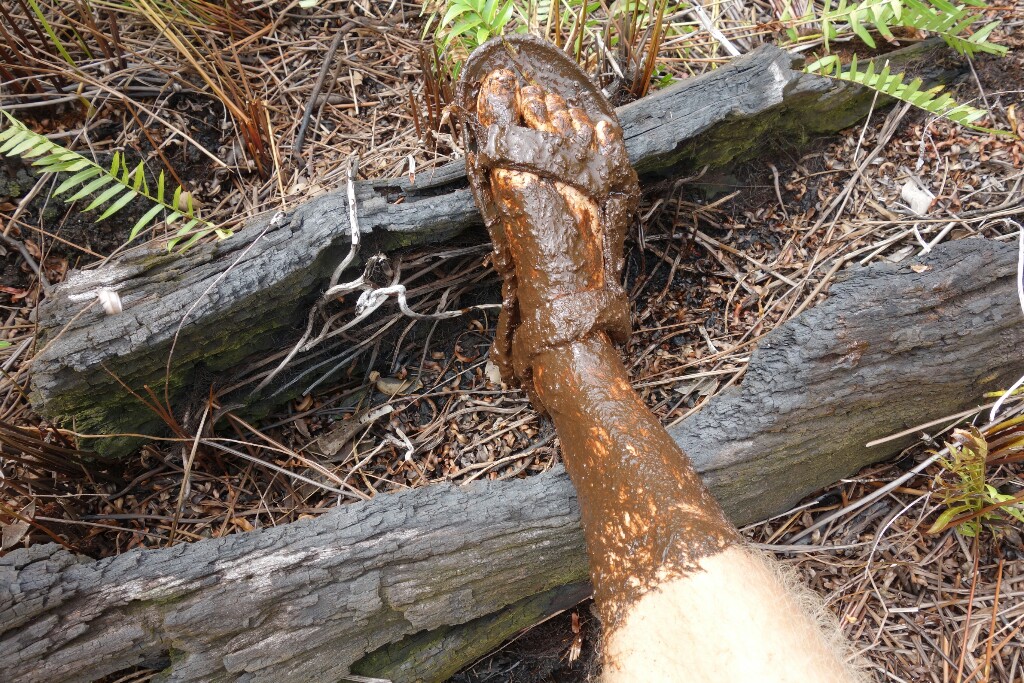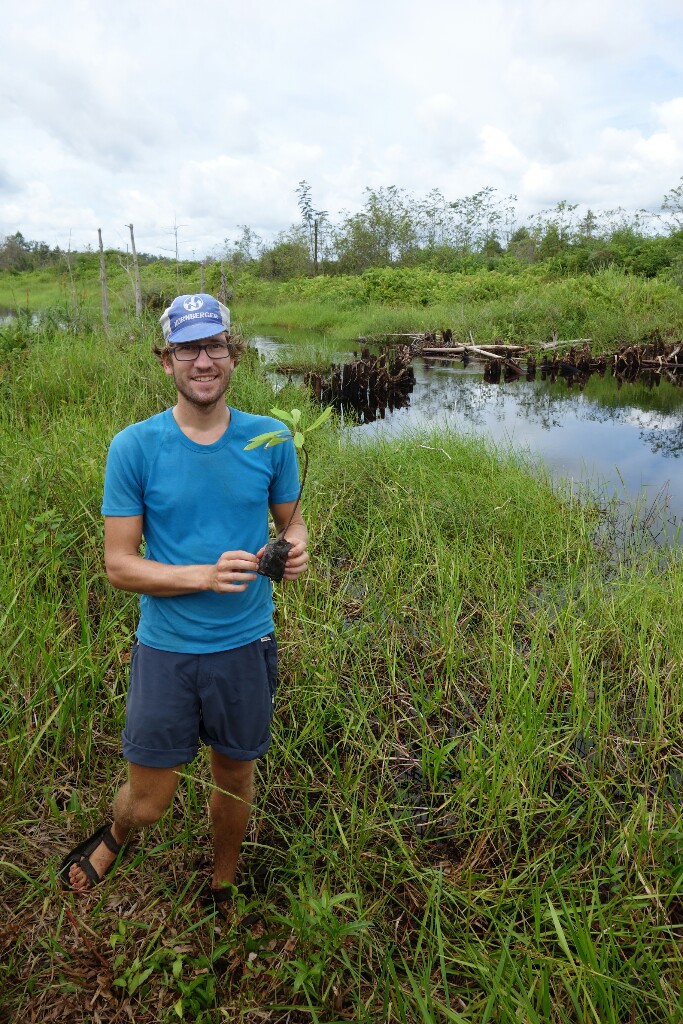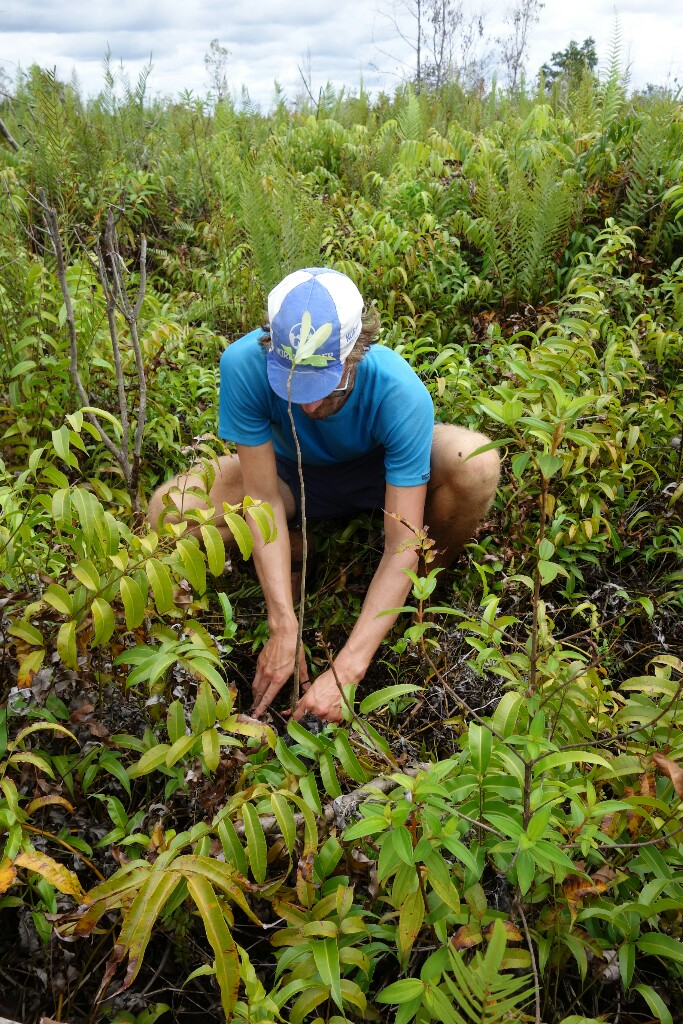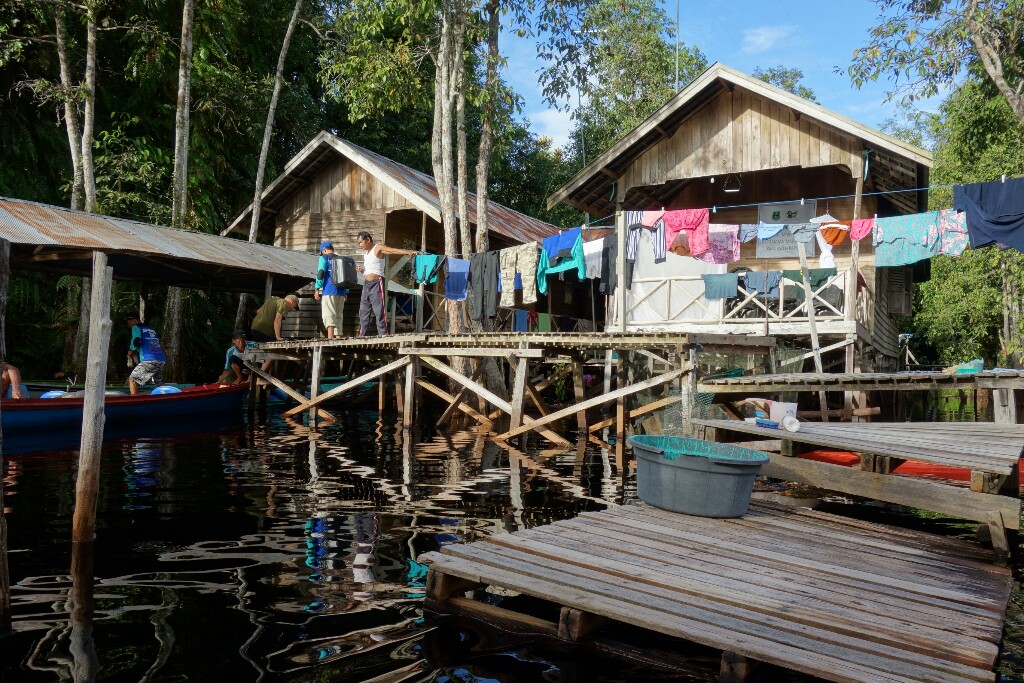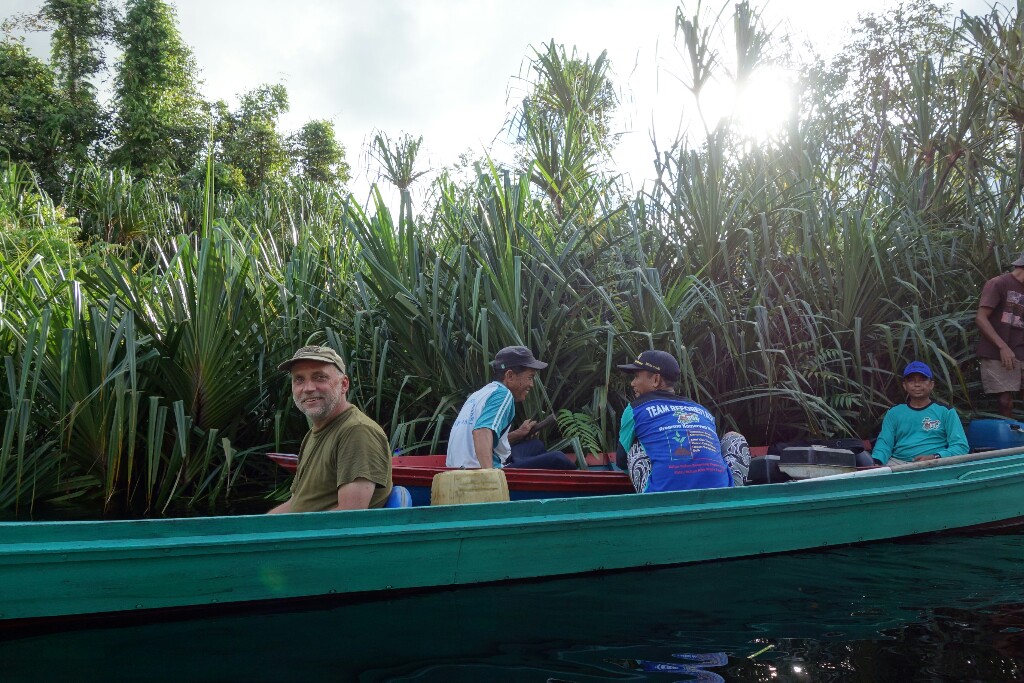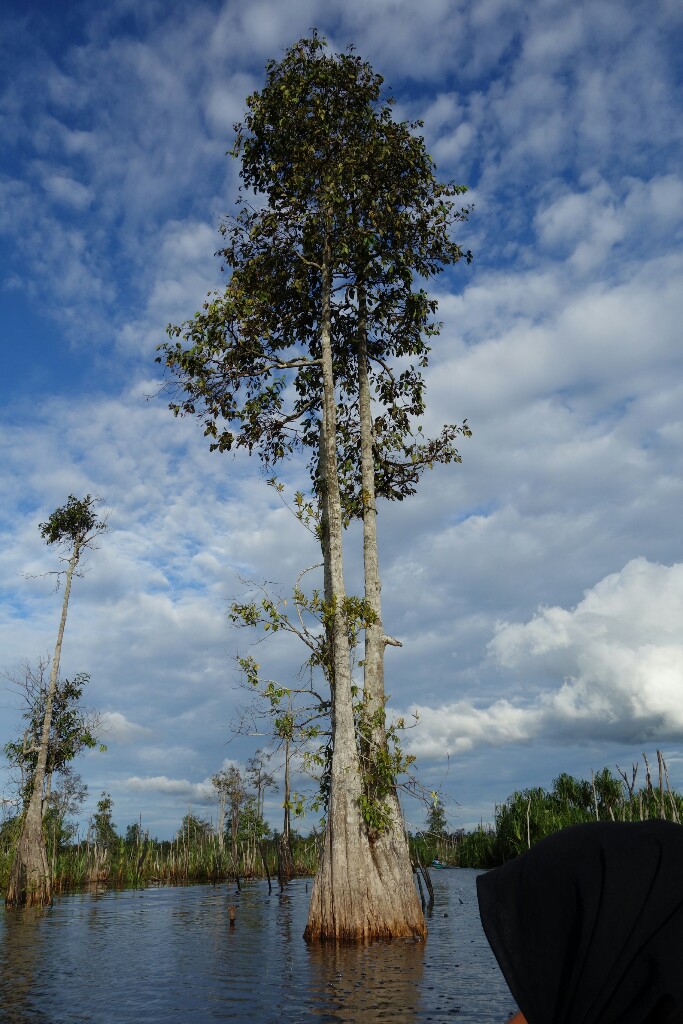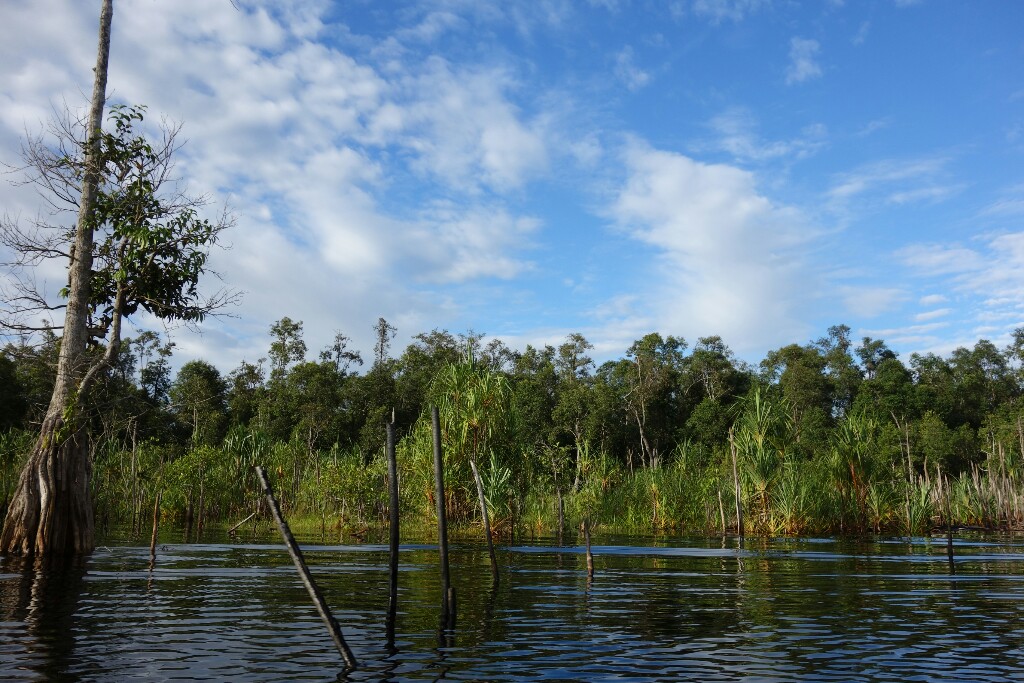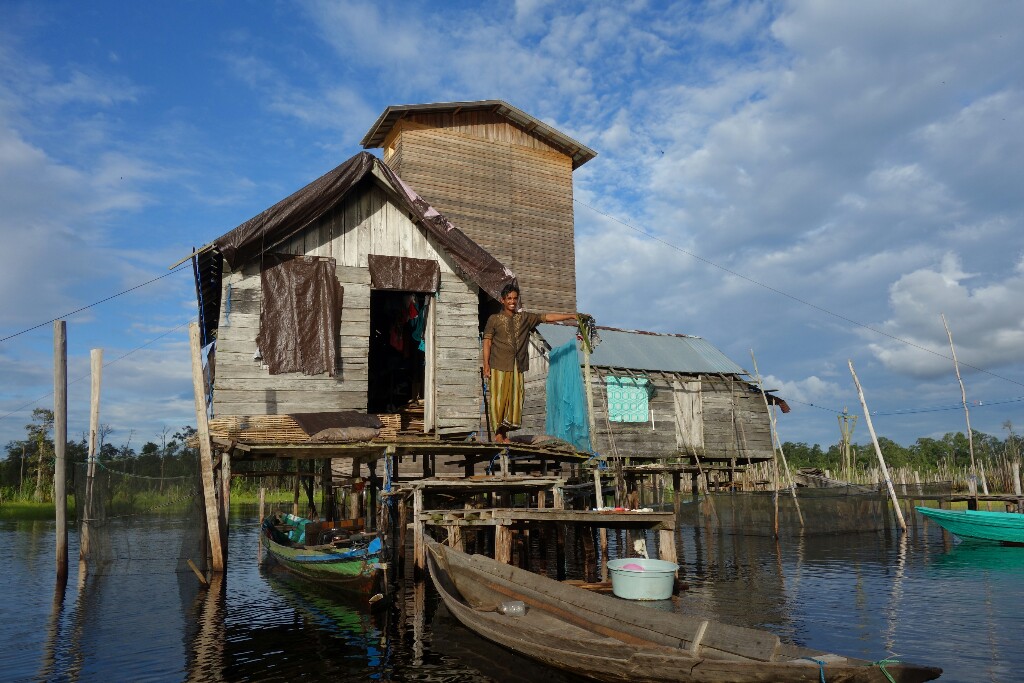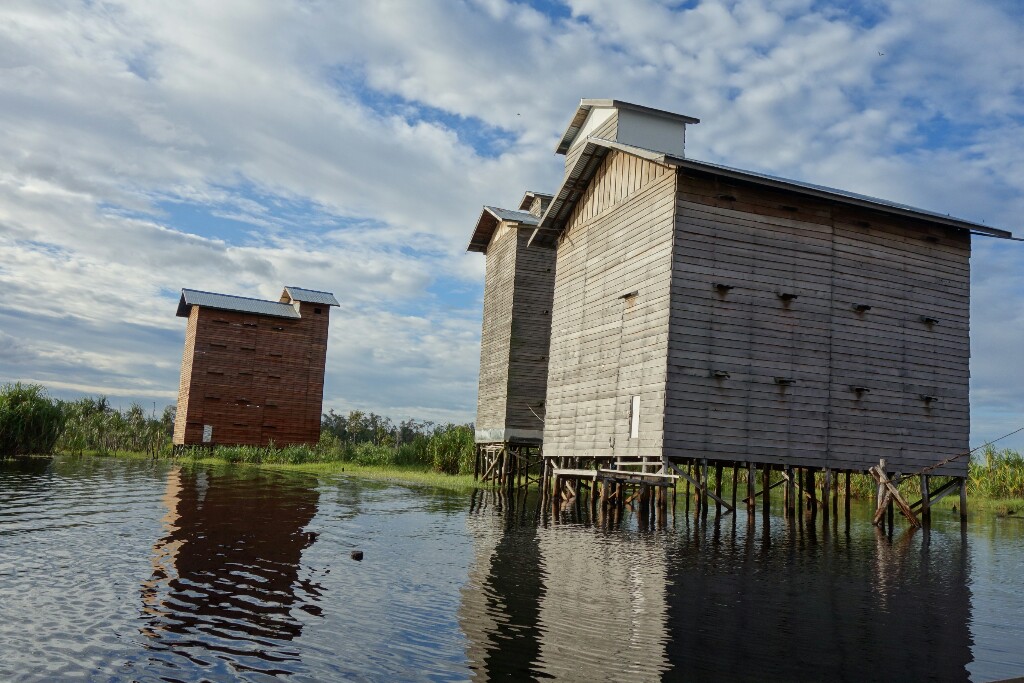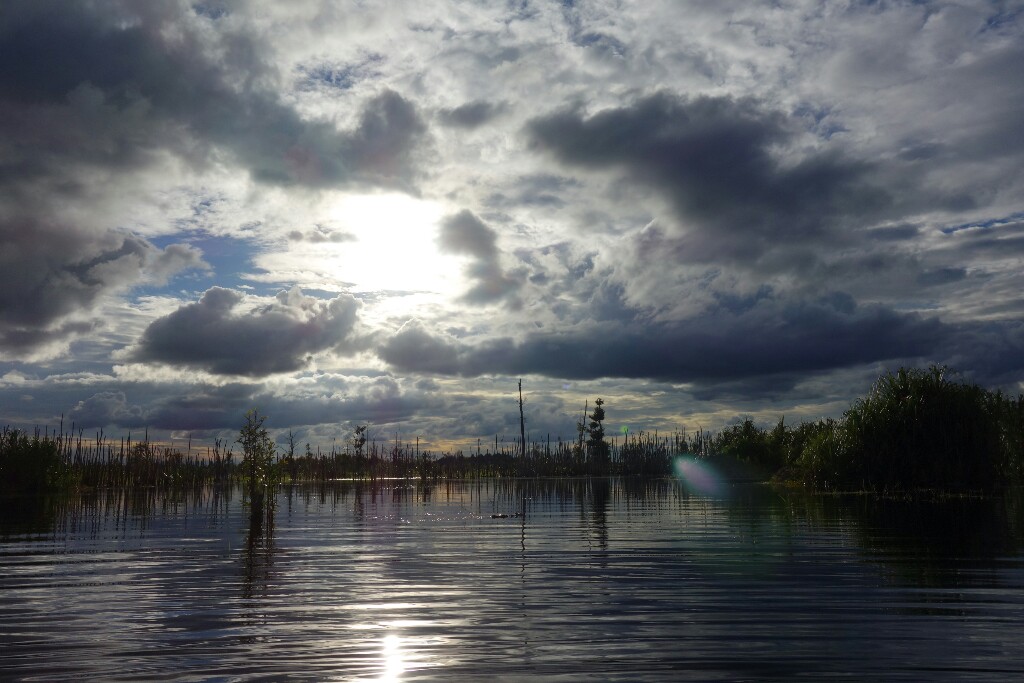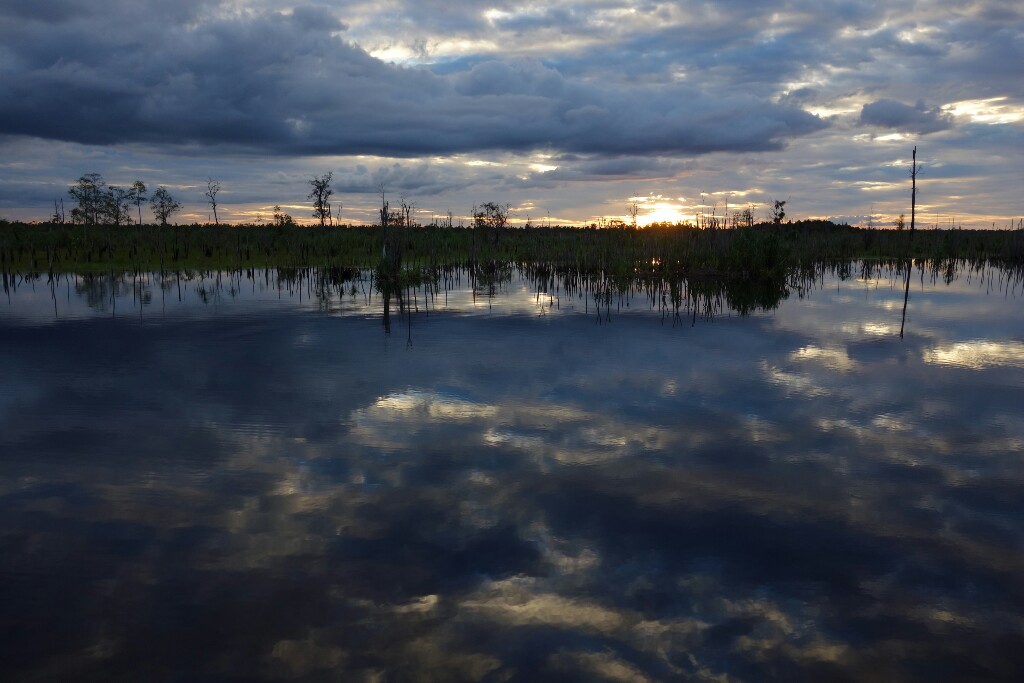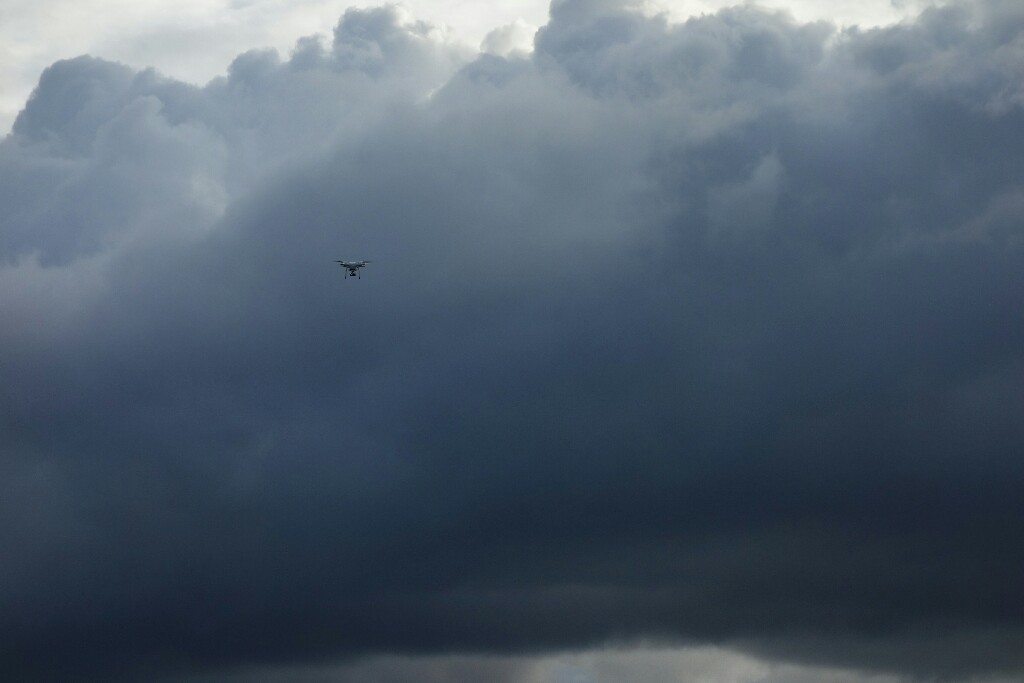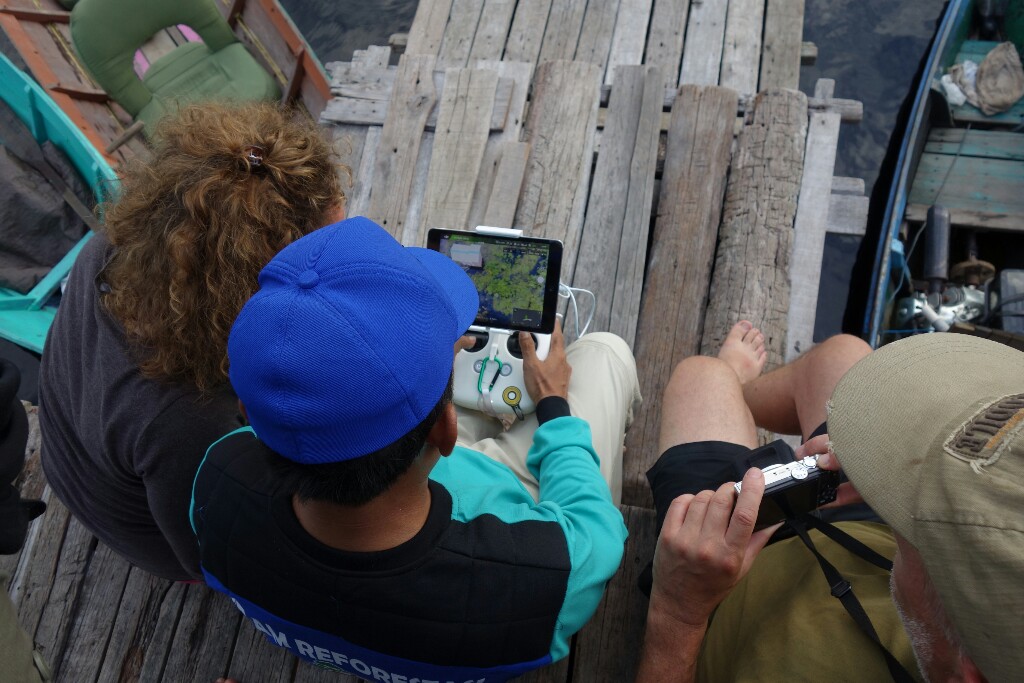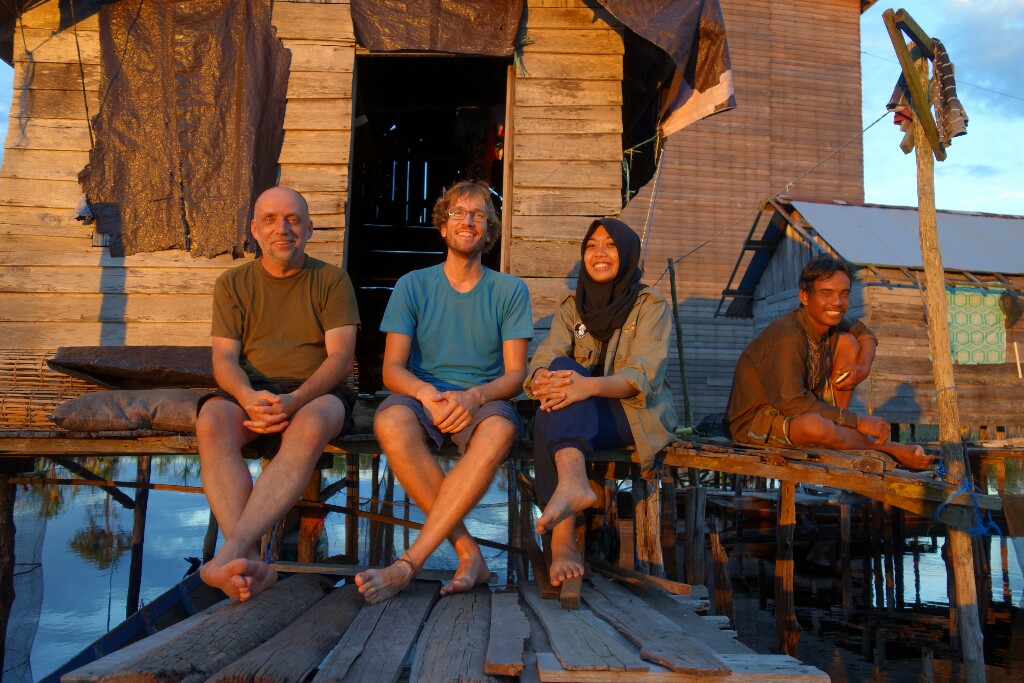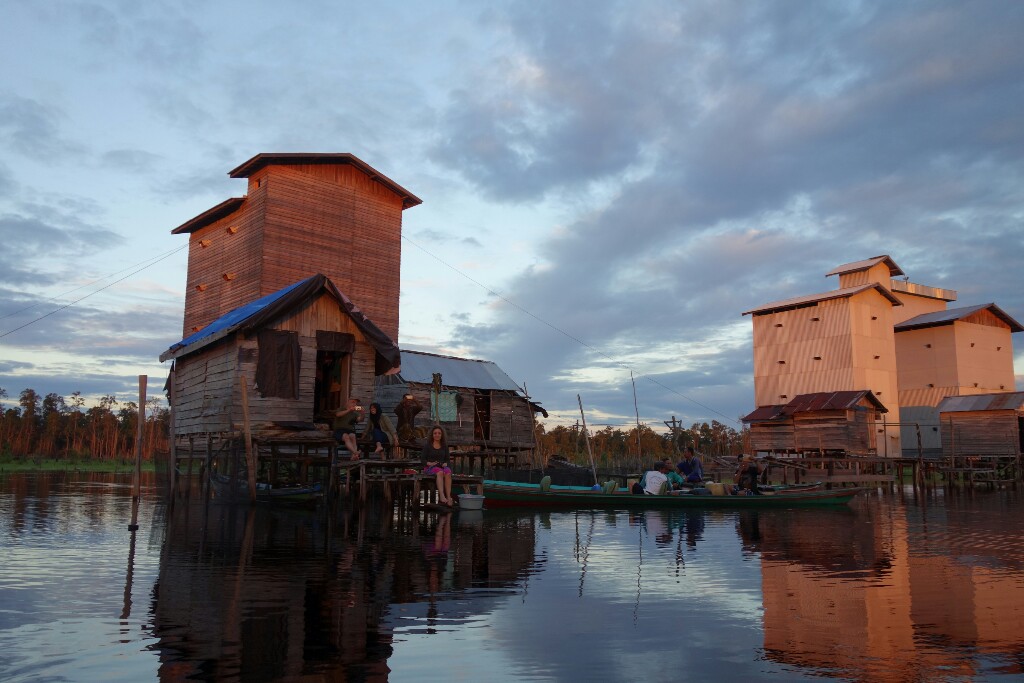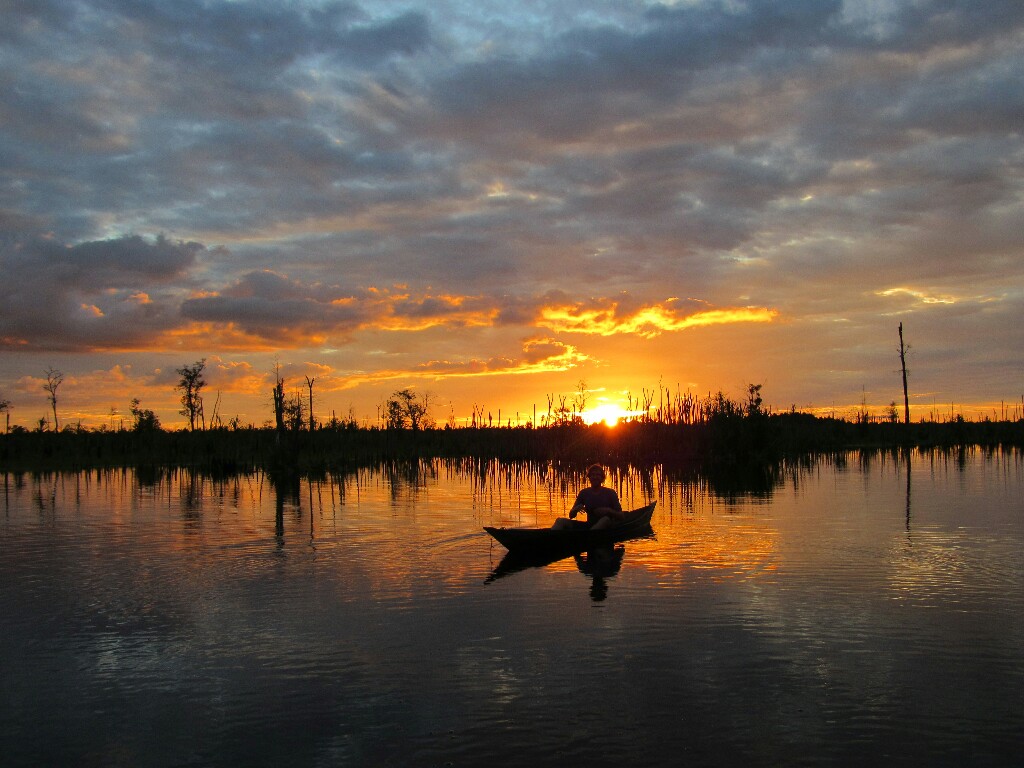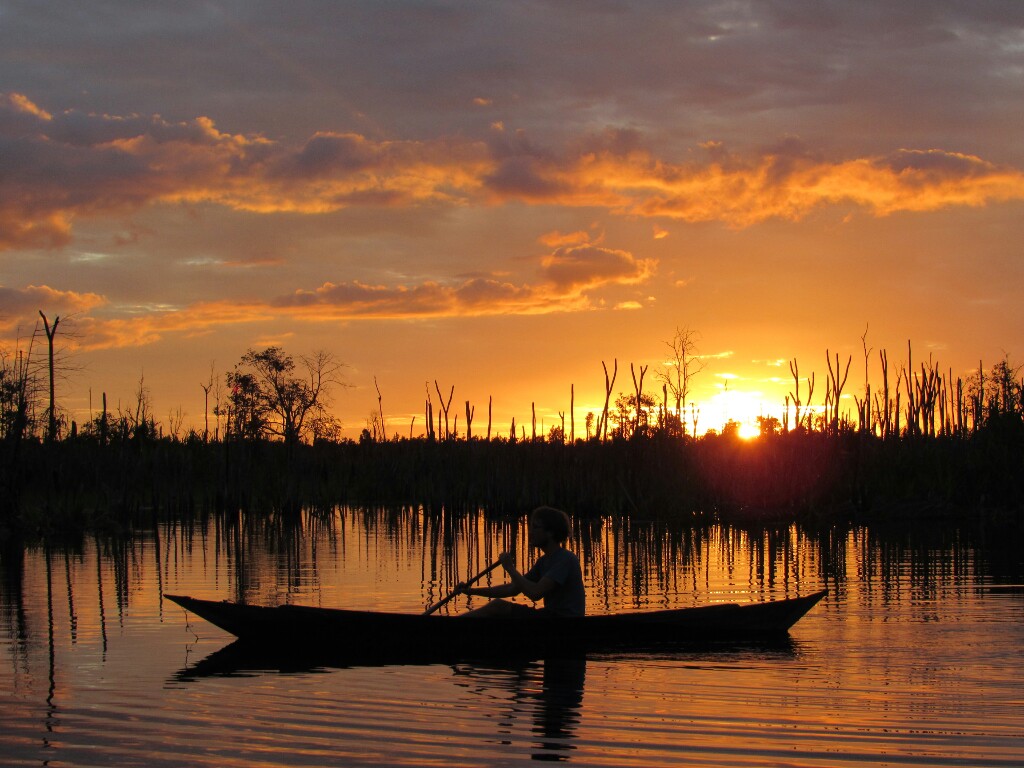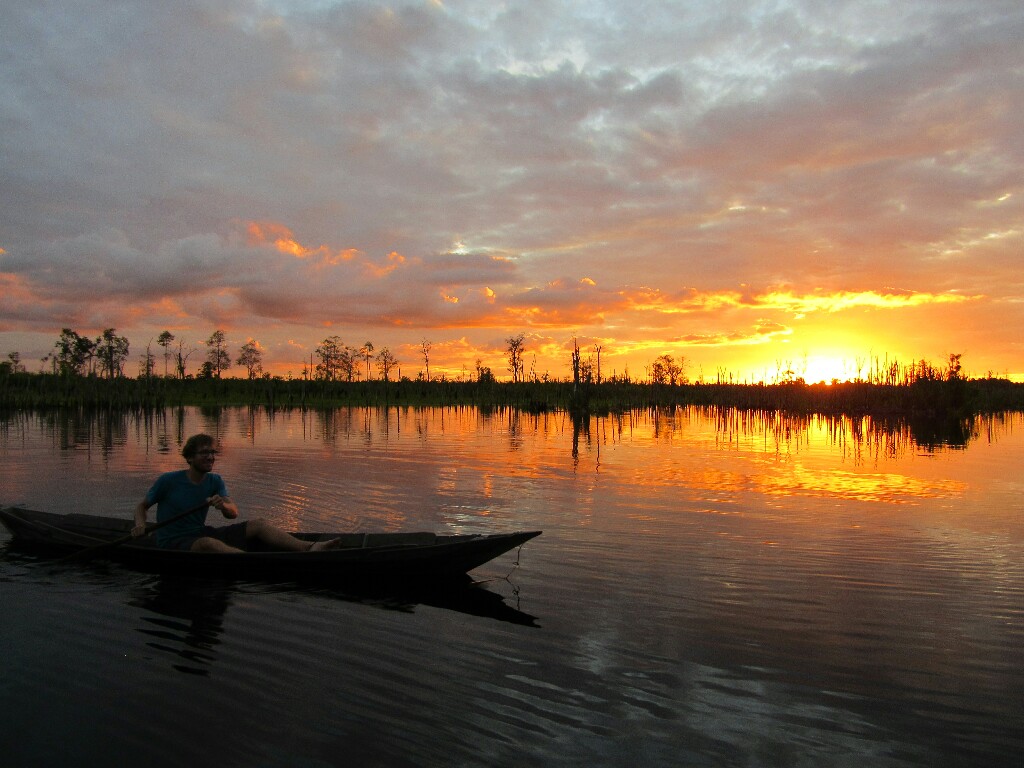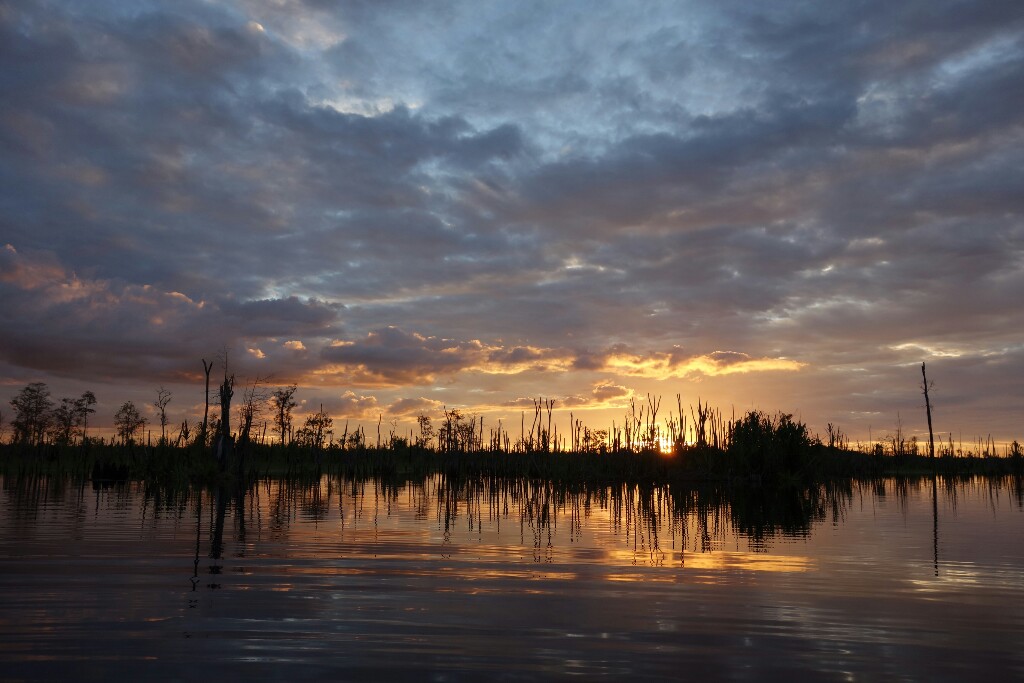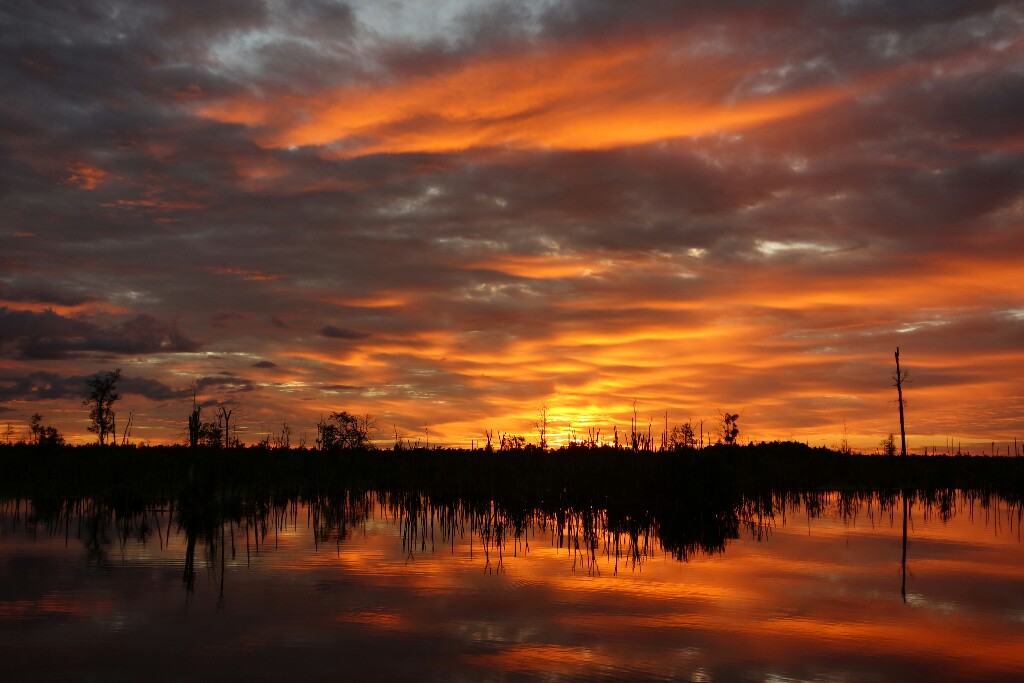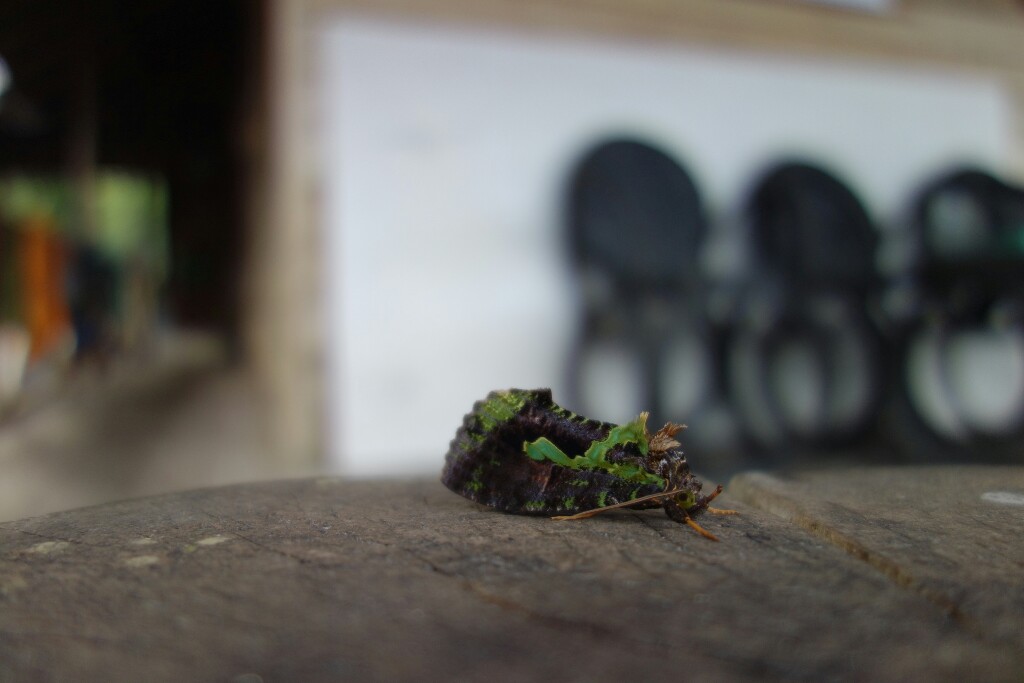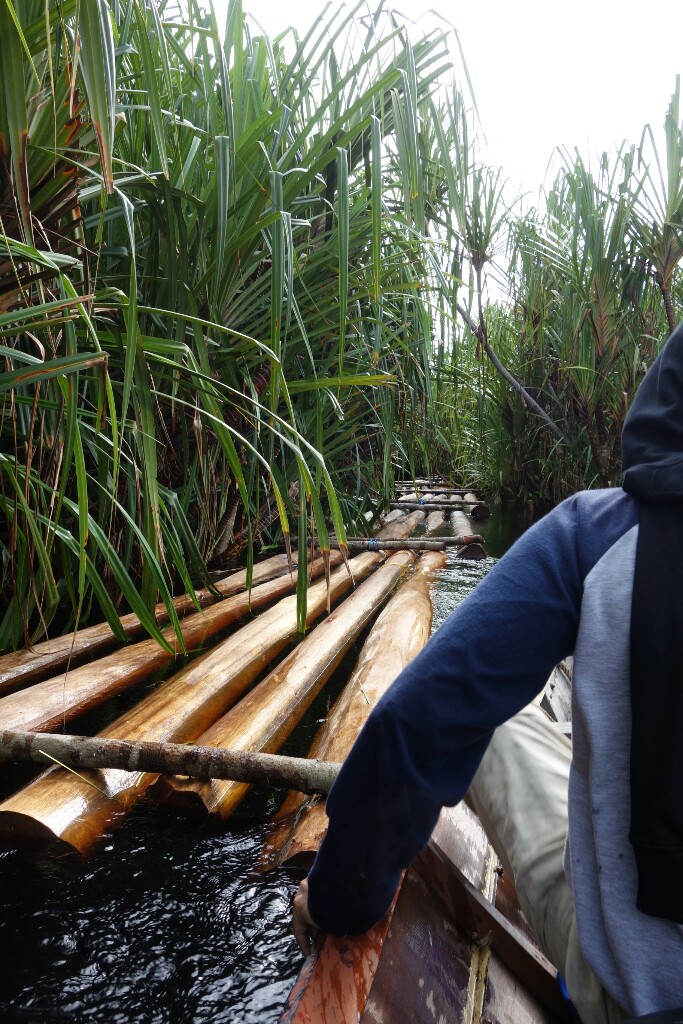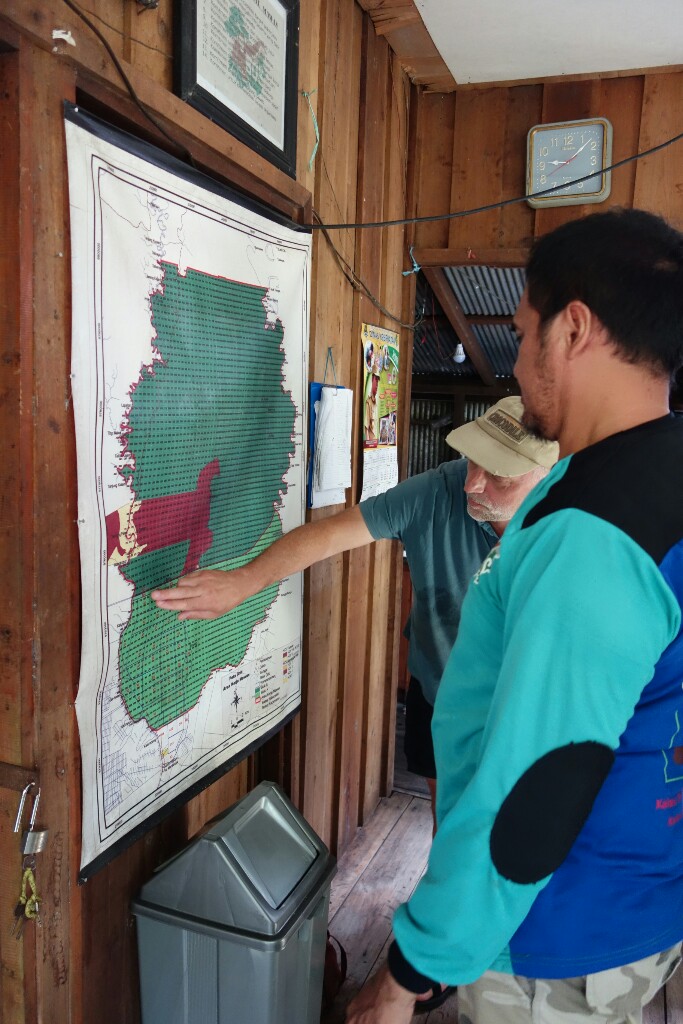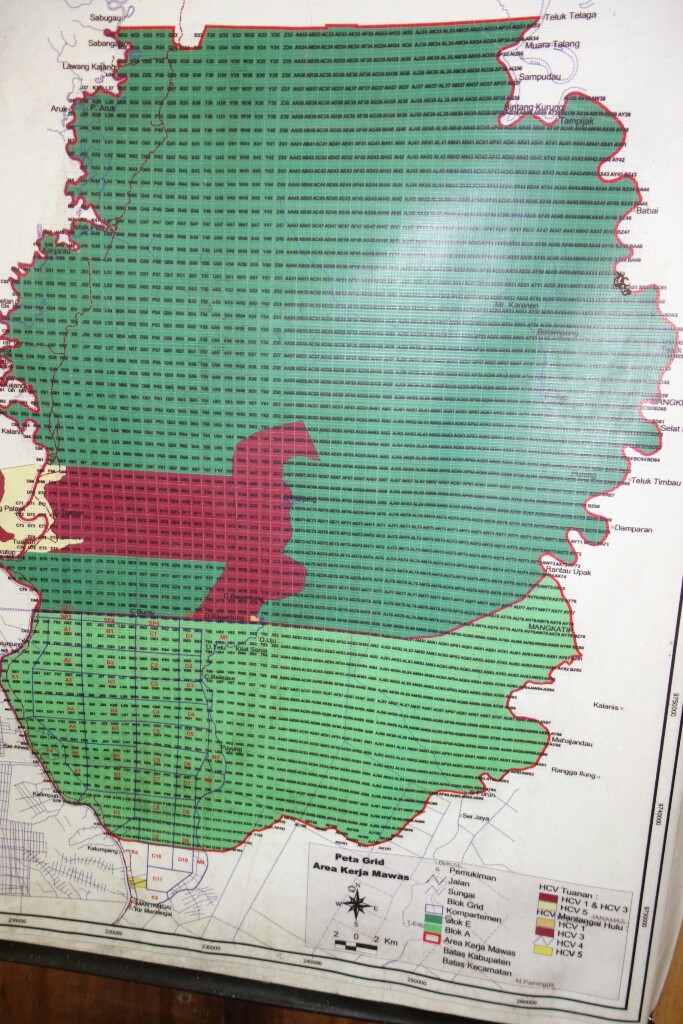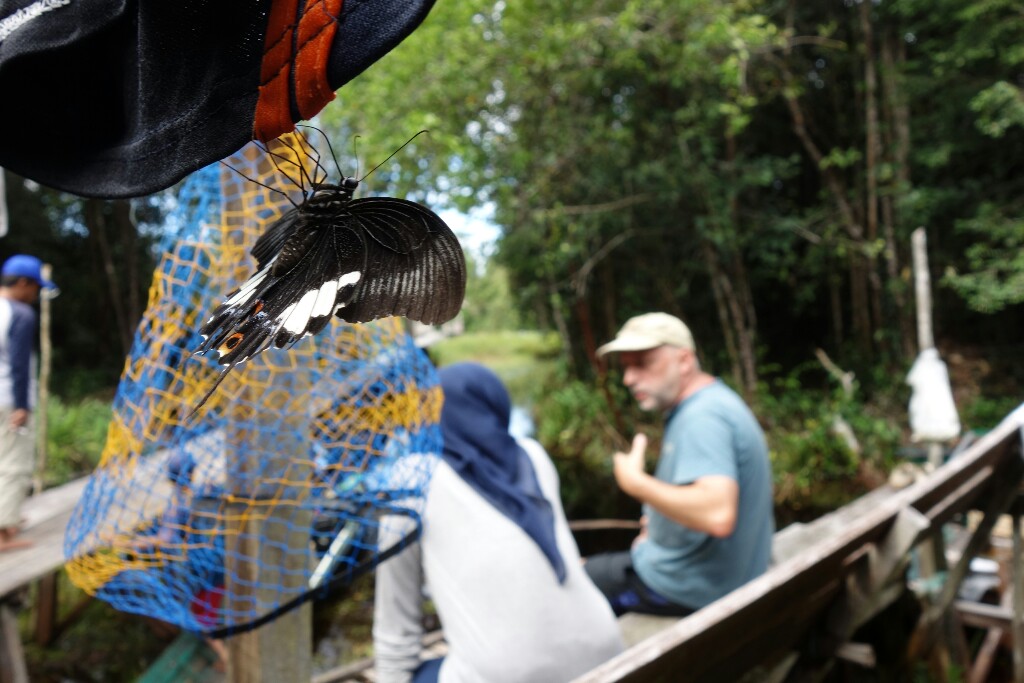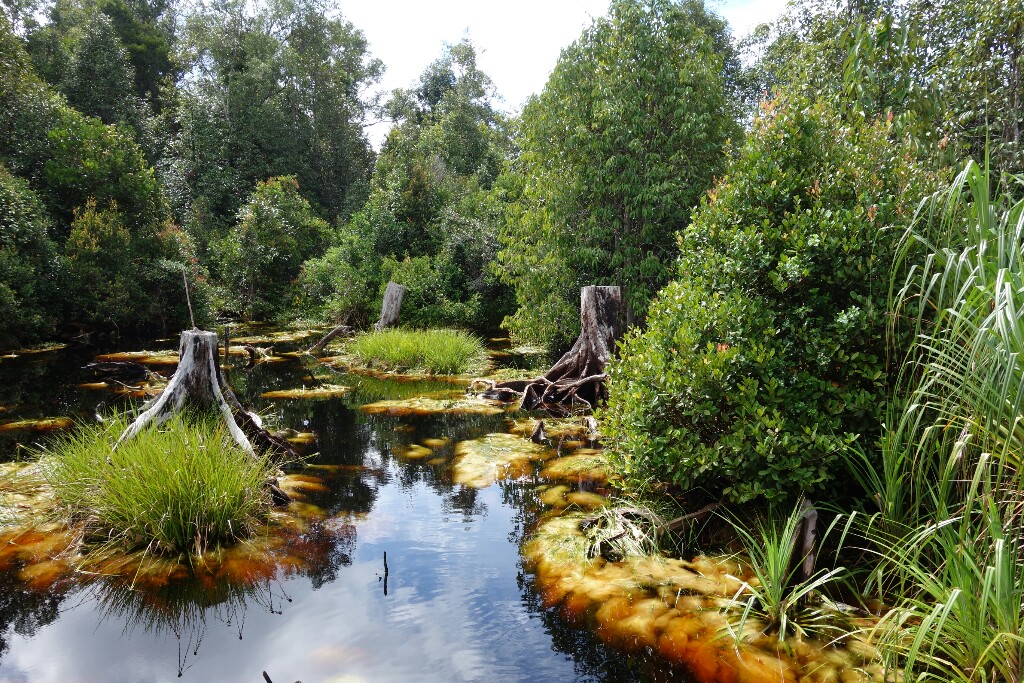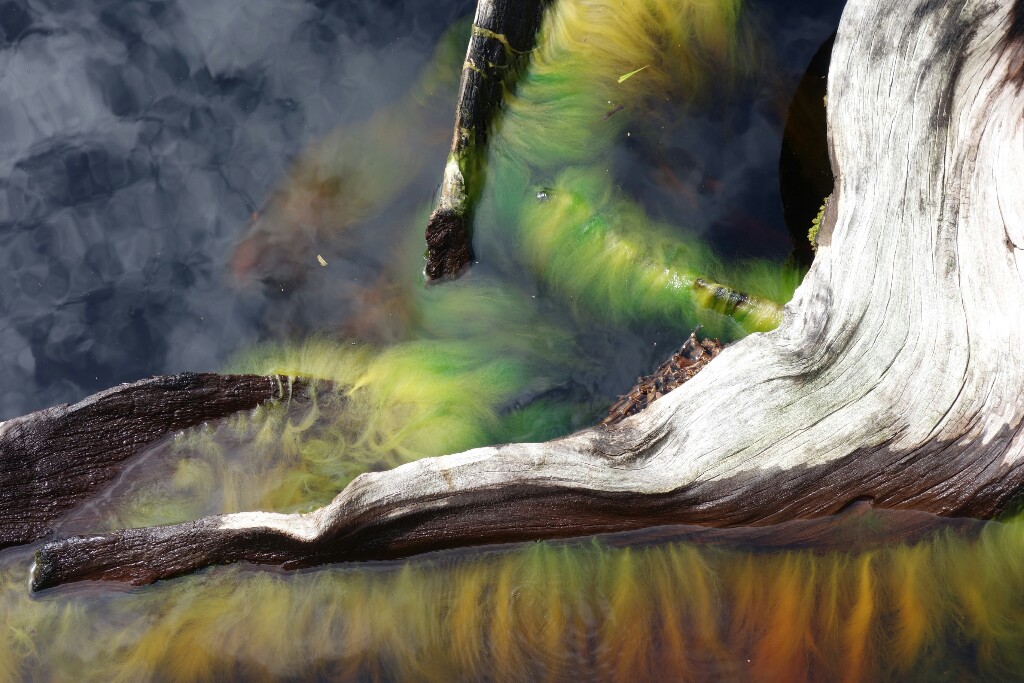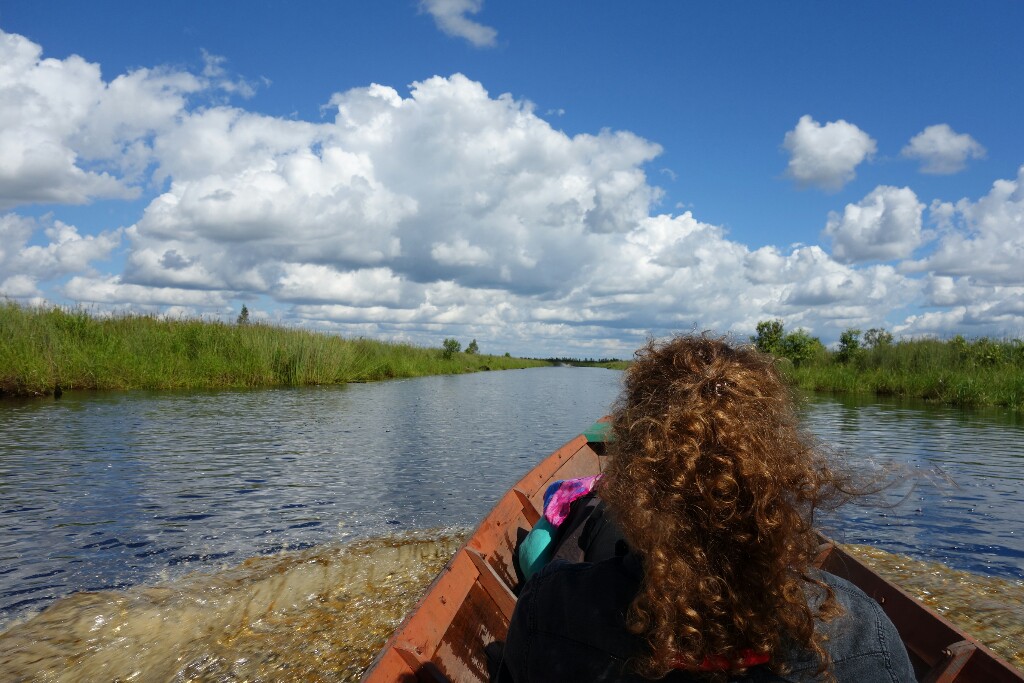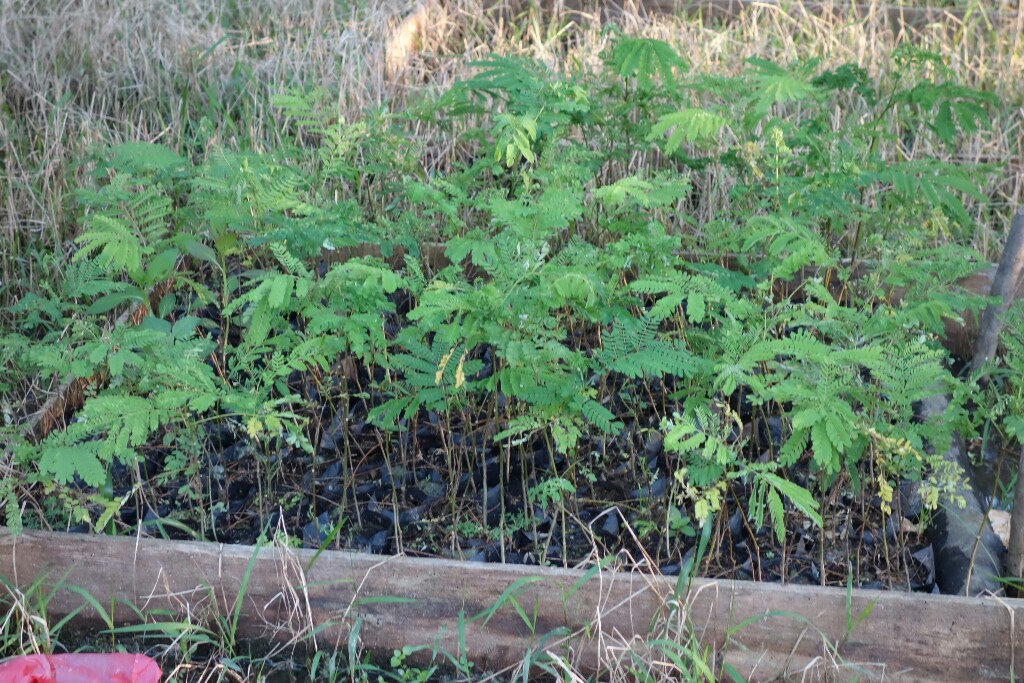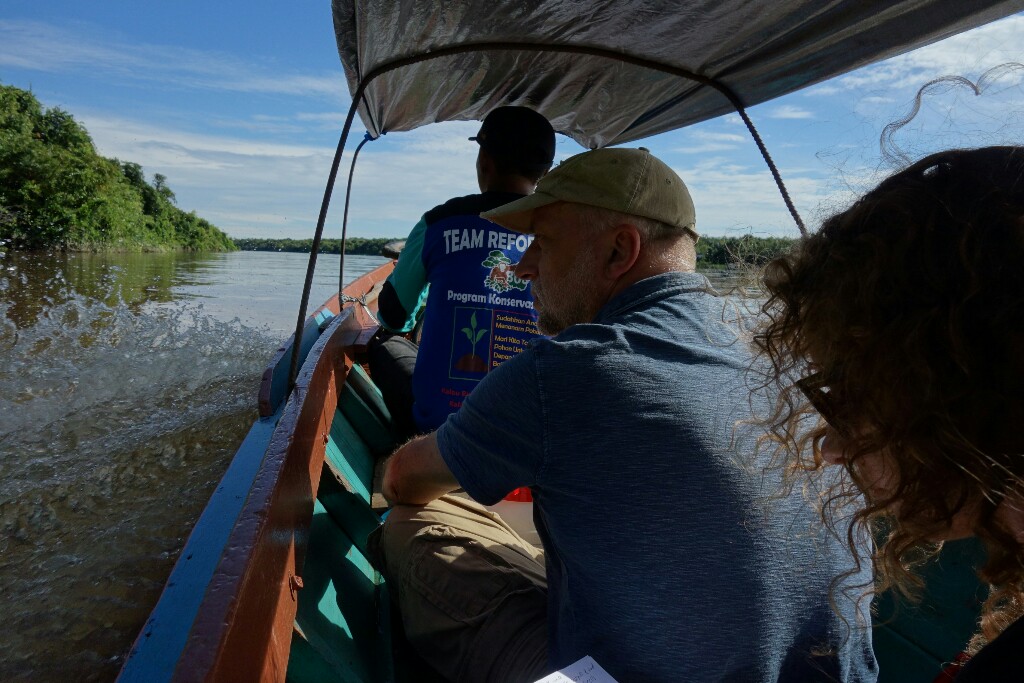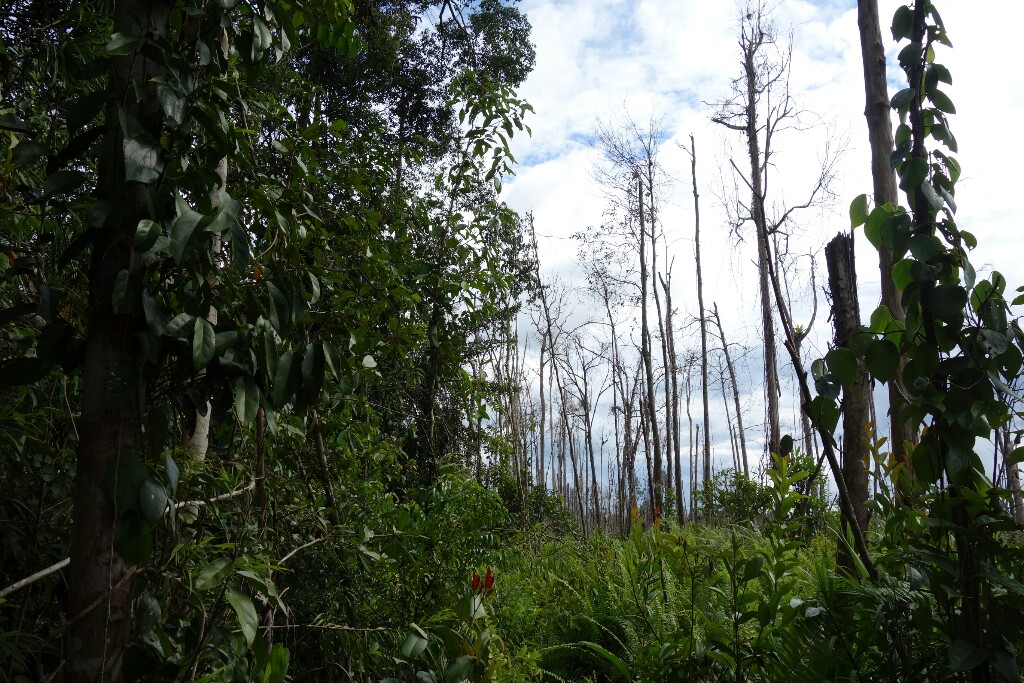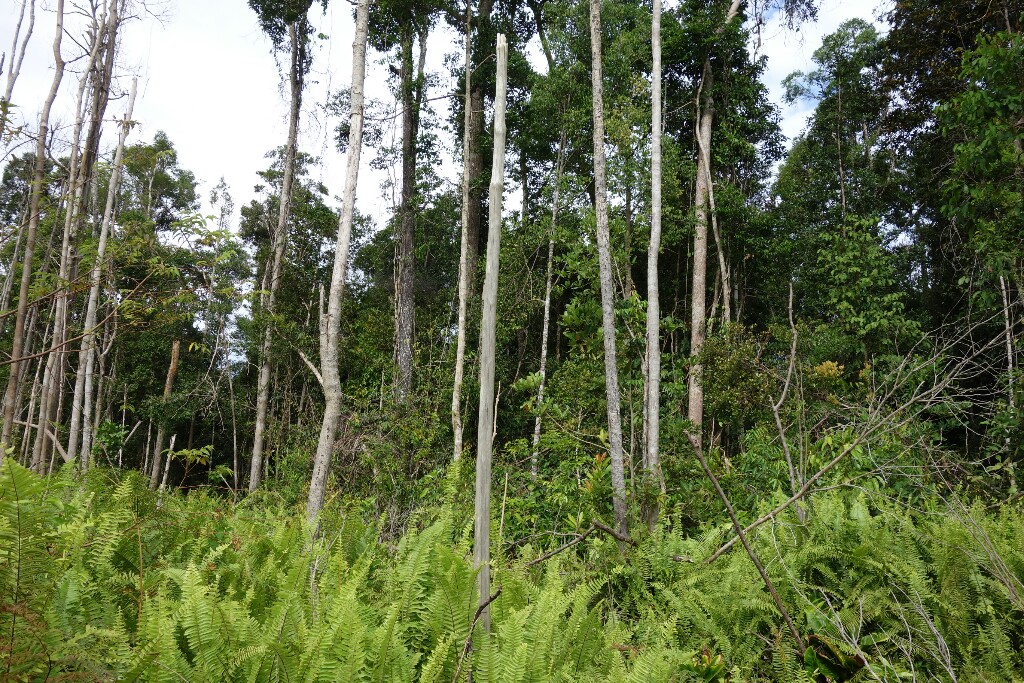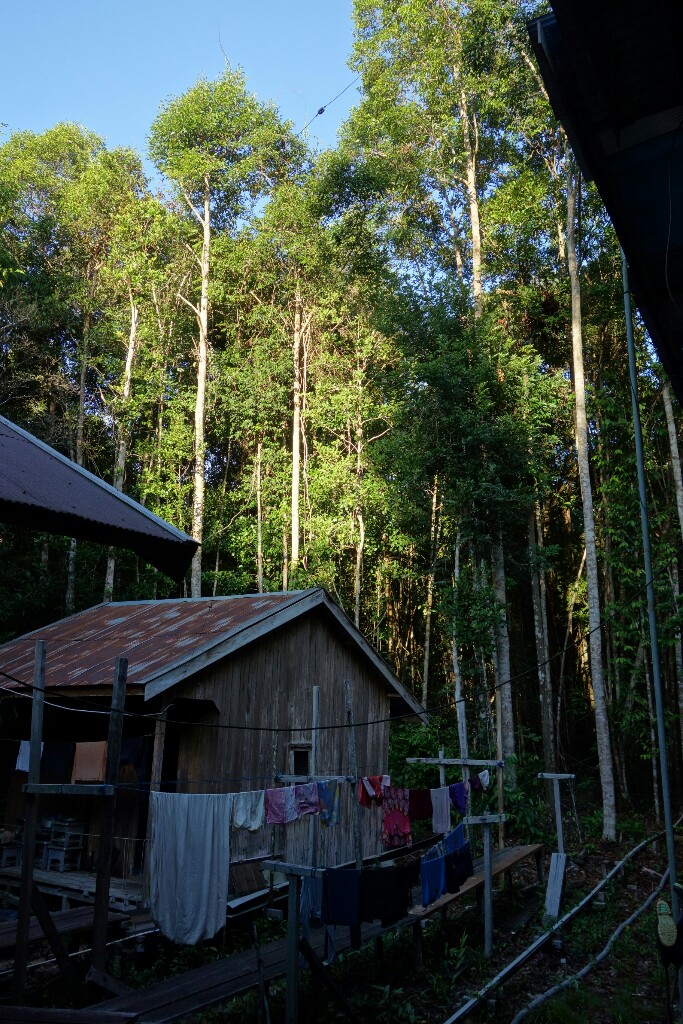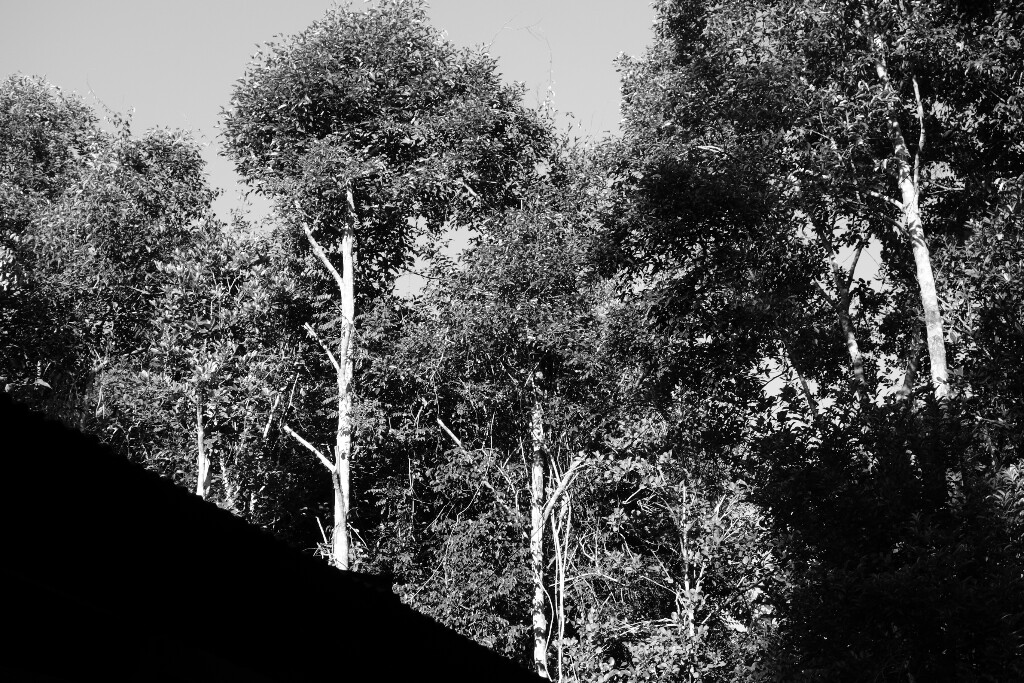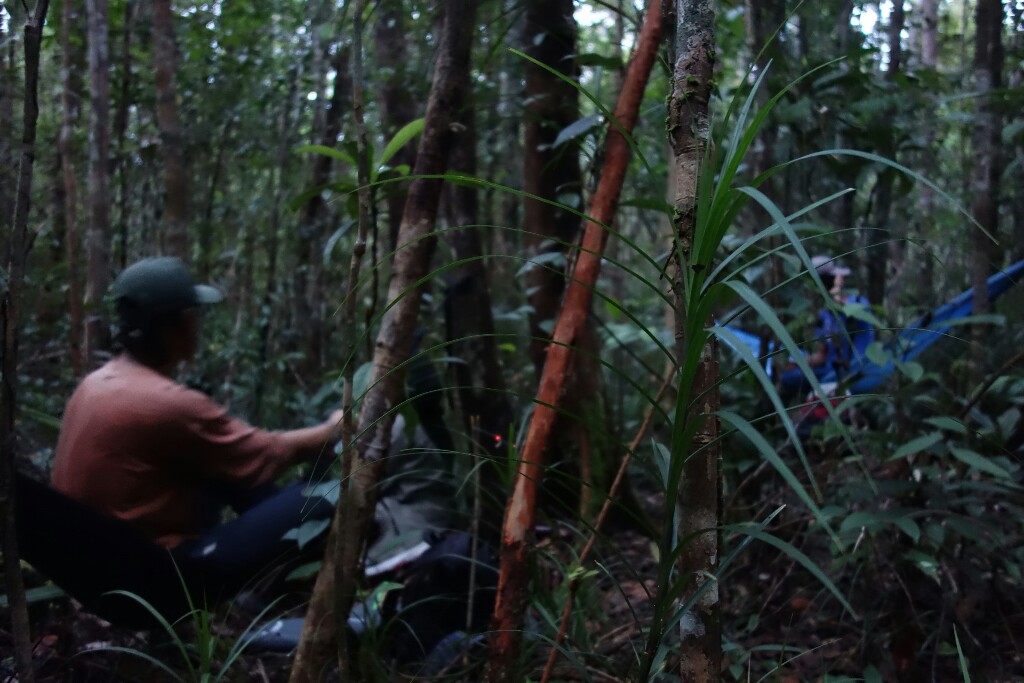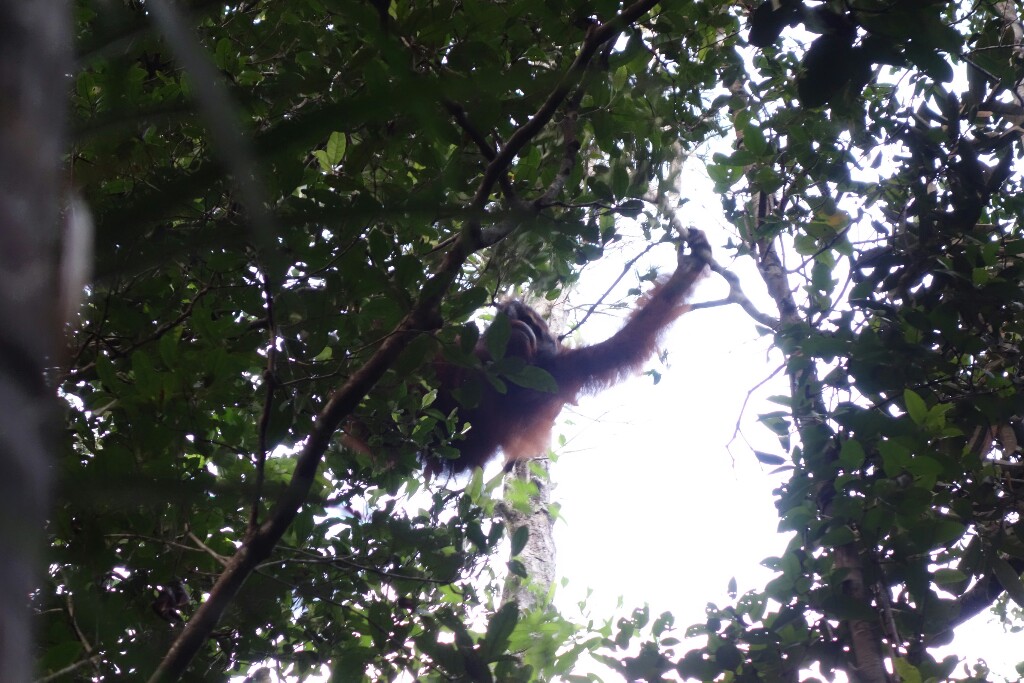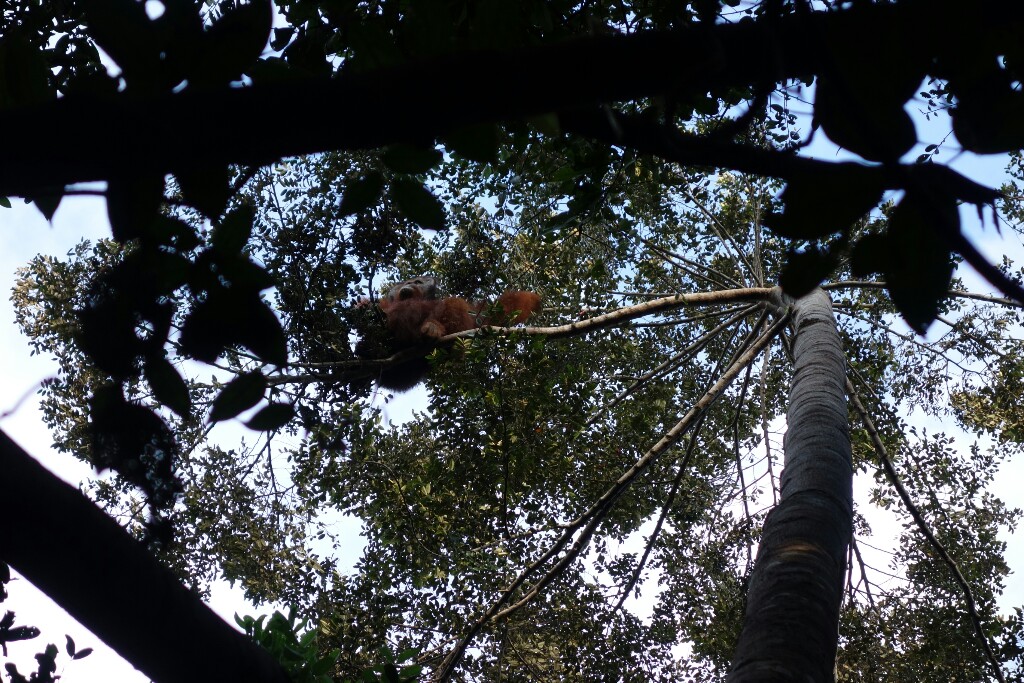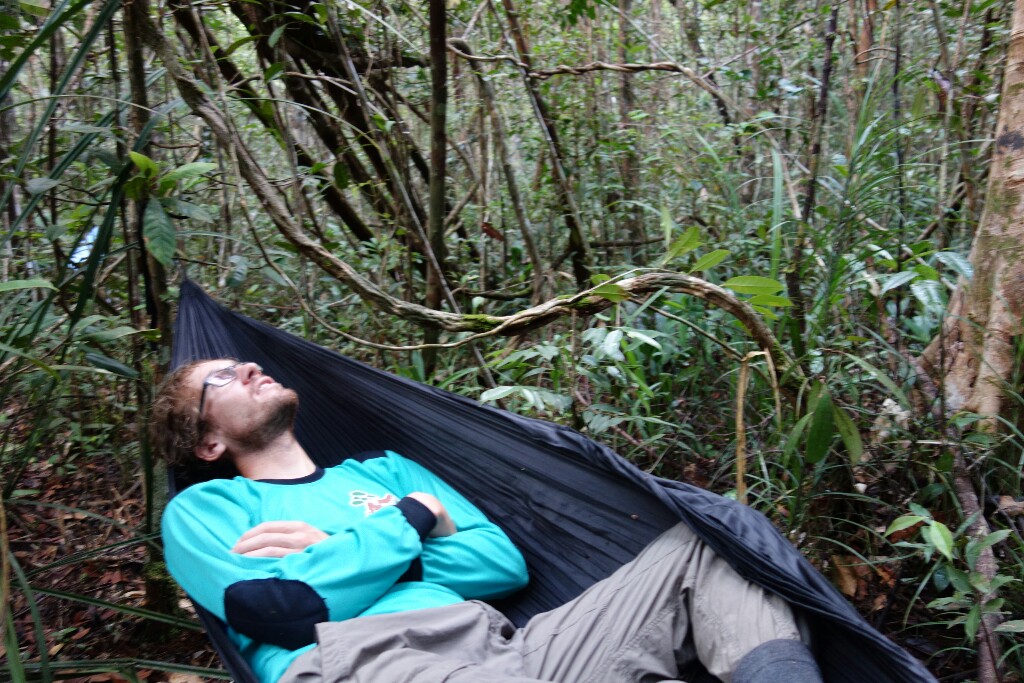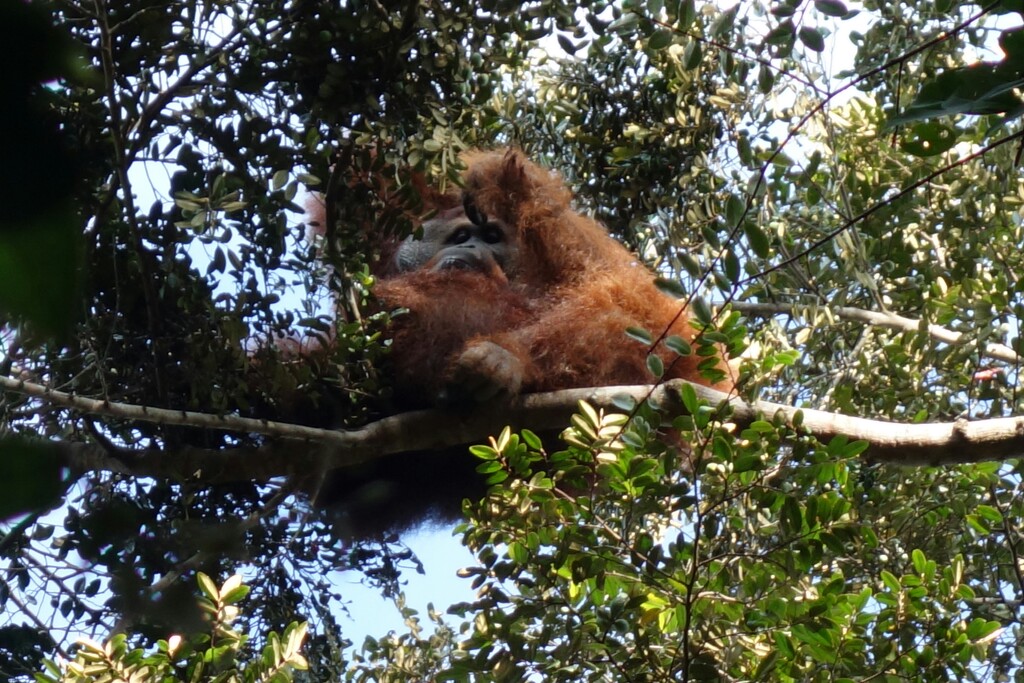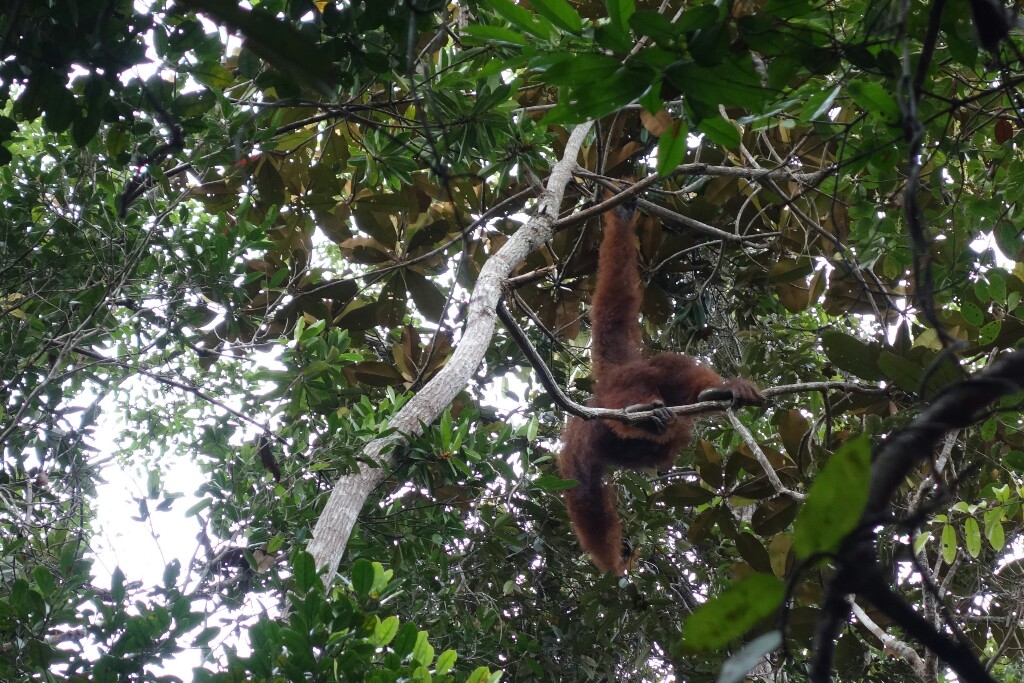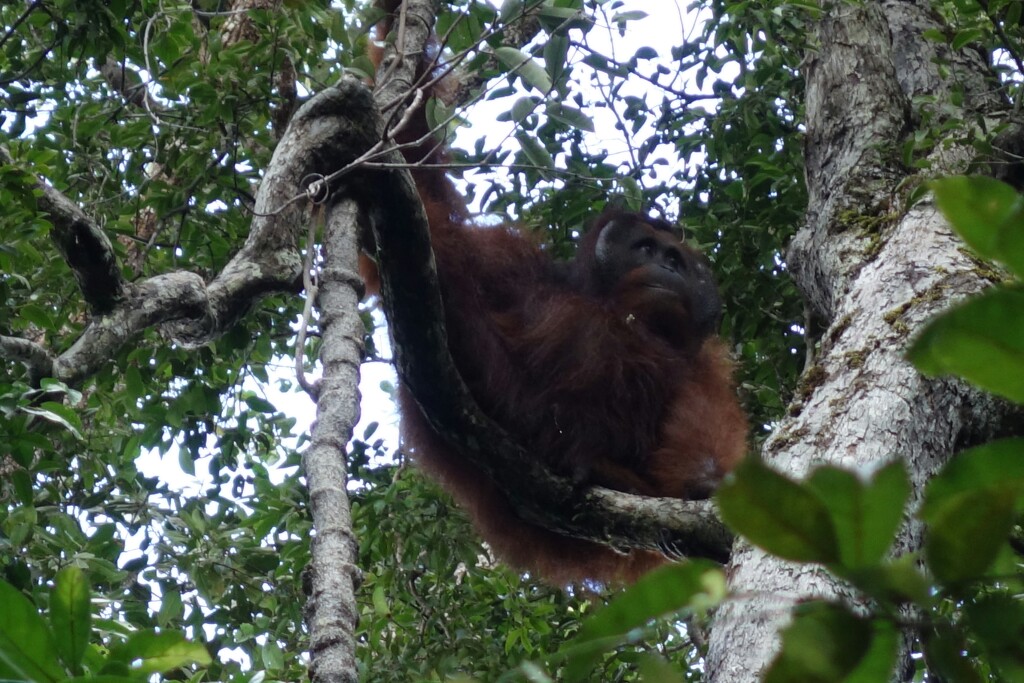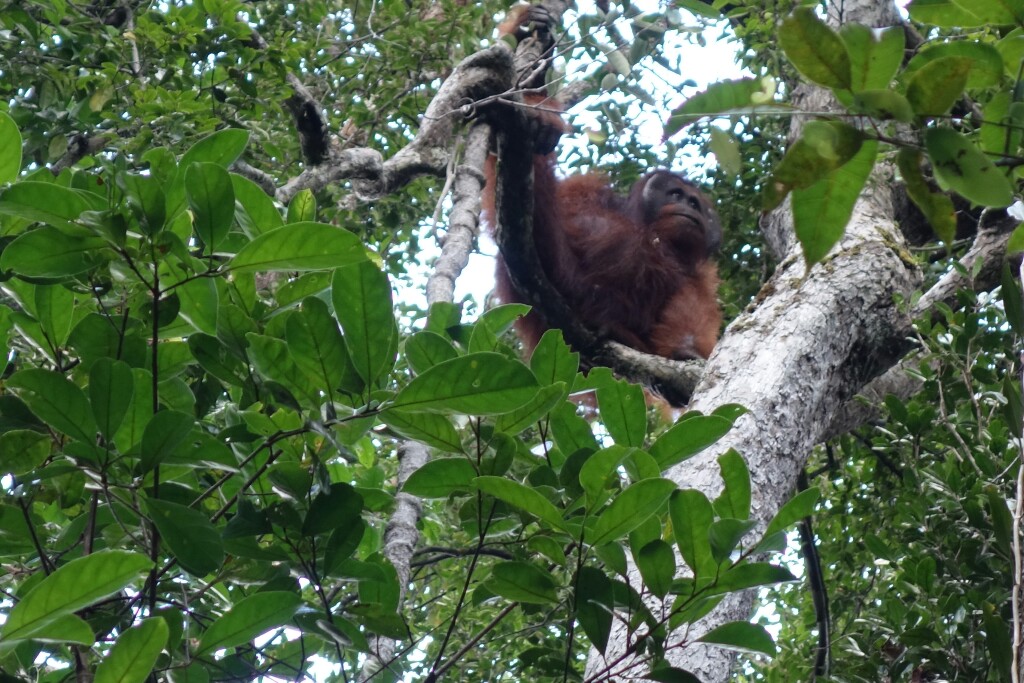Cycling for the rainforest!
Visit of the rainforest project!
It’s the 12th of June. After a relaxed night in the Obelix-Hotel, Licen (he works for BOS) picks me up at noon and we drive to the small airport of Palangkaraya, to pick up Roland. Roland is the chairman of ‘Lebensraum Regenwald e.V.’ (habitat rainforest), for which I collect donations. With him there is a German woman from Hamburg, Julia, she studied biology and wrote here master thesis about orangutans. The airplane from Jakarta arrives in time and the last people, who exit the arrival hall, are two ‘bule’ (foreigner). I am happy to meet Germans again after a long time. Our plan worked out fine, Roland and me are in Palangkaraya at the same time. JUHU. 🙂
In the evening we want to have dinner together, heavy rain had started, the street is under water. We borrow one umbrella from the hotel and go just next door to a small restaurant, anyway we arrive a bit wet. We three ‘bule’ will be together for the next week.
Roland brings along some stuff for me, conveniently. It’s a bit like receiving belated birthday presents. Among other things I get two new Schwalbe Marathon Mondial tires (sponsored 2nd time). Maps from Reise Know-How (sponsored 2nd time). Mosquito deet from Brettschneider (sponsored 2nd time). New sunglasses. Suncream. My click sandals.
As a big surprise, new business cards with my idea designed by Johanna. They are awesome. Thank you so much!
The next morning our trip to the rainforest begins. According to Roland’s wishes, Licen and the other workers of BOS planned a great trip for us, so that we can be out in the forest as long as possible. By car we drive to Kuala Kapuas and get lunch in the BOS office. (At this time I don’t know, that I will come here again.)
The reason to come to Kapuas is a political meeting with a local politician of the area. We attend the meeting and try to impress a little bit. I think it more or less works. The conversation is in bahasa Indonesia but we get translated most parts of it. The topic is about changing the certification (protection status) of a big area of land. BOS wants to protect this area, so that for example logging is forbidden. In the end the officials say, they arrange it. Hope they do so!
After the meeting it is another two hours drive to a small village called Mentangai. In the end we drive for a long part though palm oil plantations, which all had been rainforest before.
In Mentangai we change to water transportation, by small long boats with very noisy engine. The ride is on anthropogenic channels, it feels quite fast (but isn’t) and takes about two hours again.
In the end it’s almost dark and through tiny water paths we suddenly arrive at Camp Release. The camp is built in the water and located next to the small stream, which meanders more or less parallel to the big straight channel. It is a small oasis in the middle of nowhere.
Roland and I have mosquito nets with us and sleep outside on the terrace. It is Roland’s recommendation, he was sleeping there at his last visit, too. The next morning I find a small green bug on the outside of my net.
Today it is the day we will visit the reforestation area, it’s not far from Camp Release. I have the commission to plant some trees. The project is called “Ein Baum für ein neues Leben” (One tree for a new life). One tree costs 25 €. Of course more trees can/will be plant for 25 €, the price is just symbolic. Every tree of this action gets a small plate with the name of the person, which it is for. So we sit in the beautiful camp and tap the names in the small plates.
It is Ramada. Some of the people from BOS are fasting. Of course that makes the events of the day a bit slower and lazier. But not all are fasting.
The dining table, exceptionally it’s not us sitting on the table and eating. The cooks prepare best food for us every time.
By boat we go on the other side of the channel and reach the reforestation area.
The dramatic thing is, that this area had already been reforested, approximately 2.000 hectare. But during the reforestation 2005 a fire destroyed a big part of the work again.
Now they built hydrants to be able to fight better against fire.
The good thing however is, that we are near-equatorial, we are in the tropics, which means a whole year growing season. The greenery grows very fast, this is one tree after about two years.
Every three meters one tree is plant.
Na, den kennt man doch. 🙂
The ground is very swampy, and if you are not careful you can get stuck.
This are the small trees, which are going to be plant. As the forest will be habitat for orangutans in future, only useful trees, which bear fruits orangutans eat, will be plant.
And then we plant some trees.
Camp Release is beautiful.
In the evening we follow the small stream a bit south to watch the sunset.
Scattered there are some bigger trees.
And indeed also some people live here.
But what really seems unlikely are the big wooden skyscrapers. Only built for swallows. The swallow’s nest is an expensive delicacy, and most of them are exported to China. As I wrote earlier I have seen those houses in a lot of parts of Southeast Asia, but nowhere as many as here. Building such a house is expensive and the local people have to raise a credit from the bank.
As explosive, as they spring up like mushrooms, I see this business very doubtful!! If you want to know more, search on wikipedia for “Schwalbennestersuppe”.
The view is a bit depressing in this deforested area. But the approaching sunset gives it a beautiful touch.
A drone. Maybe it’s just a toy for adults, but it has a use of course, too.
The evening light is so beautiful.
Suddenly I get the idea to take a photo from the water. I see a very slim small boat and ask if I can use it. It is so unsteady, I am very scared to fall into the water, wouldn’t be that bad, but I have the camera with me. Until I manage to be out on the water, it’s already too late the light lost its power and beauty.
But Julia took perfect pictures of me. 😉
The sky enchants more and more. But quick we have to go back to find the way through the overgrown river jungle.
The next day we see a green black moth. It’s shape is a bit like a velomobil.
After breakfast we go north to visit Camp Monitoring Bagantung. We see and meet long drafts of wood. Illegal logging is still happening much too much. But we can’t do anything. In the area it’s not allowed to log. We don’t have any power. And revenge (i.e. fire) is so easy.
In the camp a big map hangs at the wall.
The whole area is 309.000 hectare.
The dark green area is ok rainforest. The light green area was rainforest. The red area (about 88 hectare) burned down with a big fire in autumn 2015 (September, October and November).
We are near the small yellow dot, where red and light green meet.
The reforestation area is in D2.
The same day we leave Camp Release and go back to Mentangai,where we overnight in the BOS office. In the evening we visit a small local tree nursery. However this ones are paper trees, they grow very fast. After 4 years they are as high as a house and ready to log.
Again by boat we continue the next morning to Camp Tuanan, where wild orangutans live. It is a base for orangutan research.
We arrive in the camp and go for a first walk in the forest. Finally we are in a real rainforest. Anyway not primary rainforest.
Sadly it had burned here too. The difference is obvious and it’s so woeful to see it.
A part of the camp in the middle of high trees in the nice afternoon sun.
The next day we want to follow orangutans. Right now two orangutans are followed, one flanged male (name: Ekko) and one mother (name: Kerry) with baby (name: Ketambe). Every day the assistants, who follow a orangutan, write down (among a lot other things) the position, where the orangutan stays overnight.
To follow an orangutan means we have to get up at 3am and start walking at 4am to the position, where the orangutan had built his nest the day before. The thing is to be there, when he wakes up, so that we can follow him during the day.
Slowly it gets day and the forest gets some colour.
And then I see my first orangutan. Ekko. Wow. Unbelievable. Incroyable. 🙂
Mostly Ekko is high up in the trees and eats fruits, it’s hard to look up. Only a half day I follow him. When he changes a tree he uses the flexibility of the tree and swings more meters back and forth, the trees bend extremely. Fascinating.
Better for the neck is to observe from the hammock.
